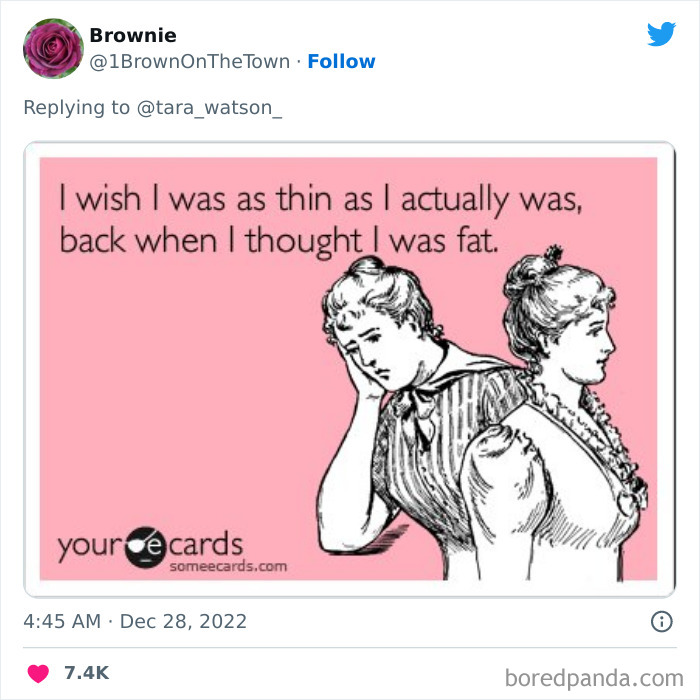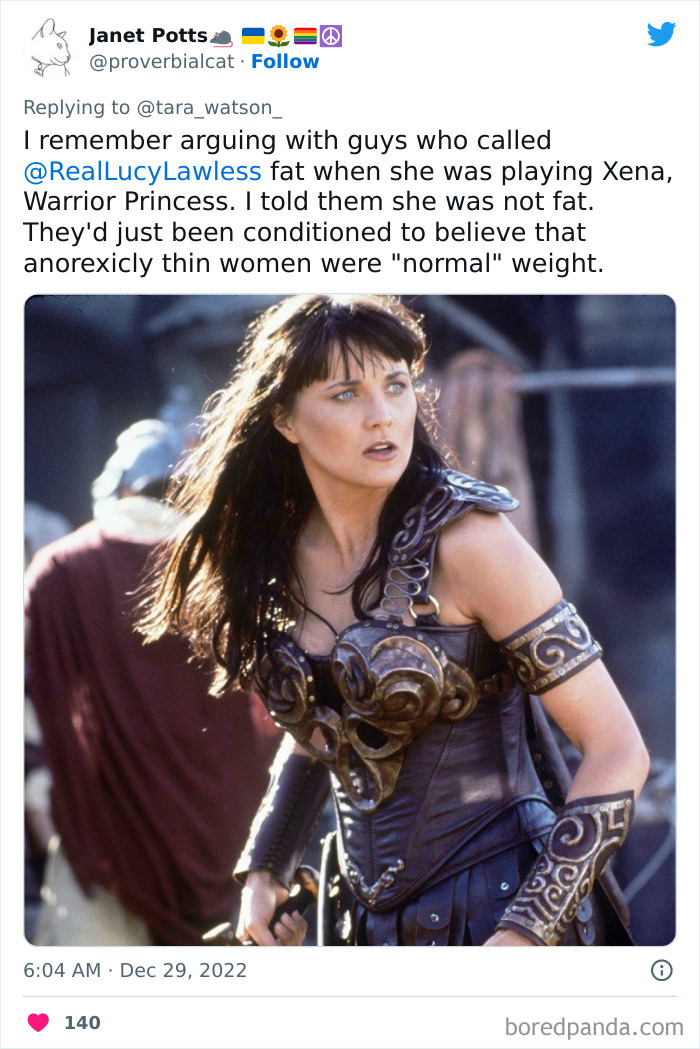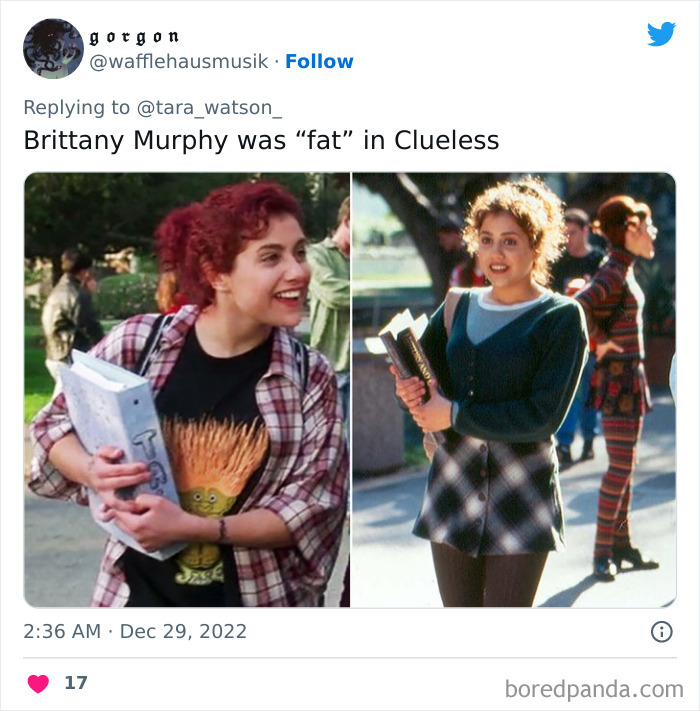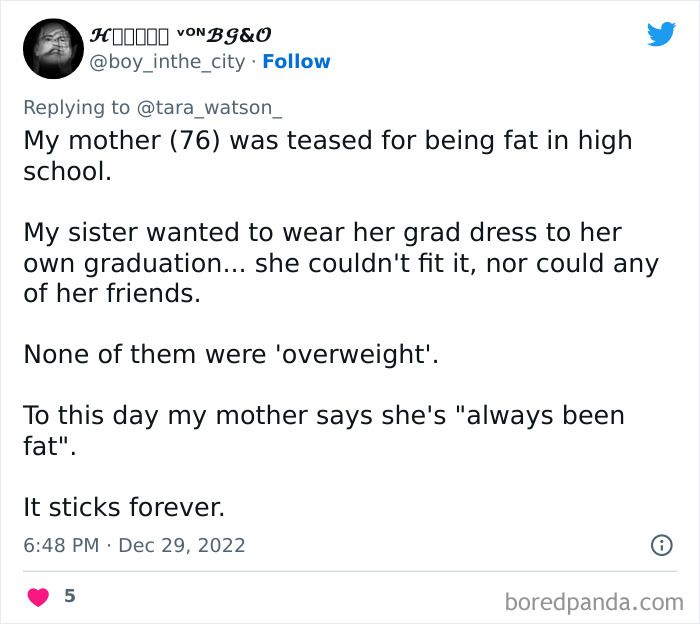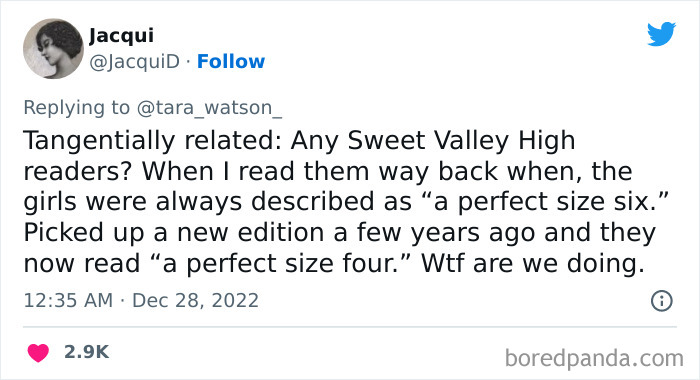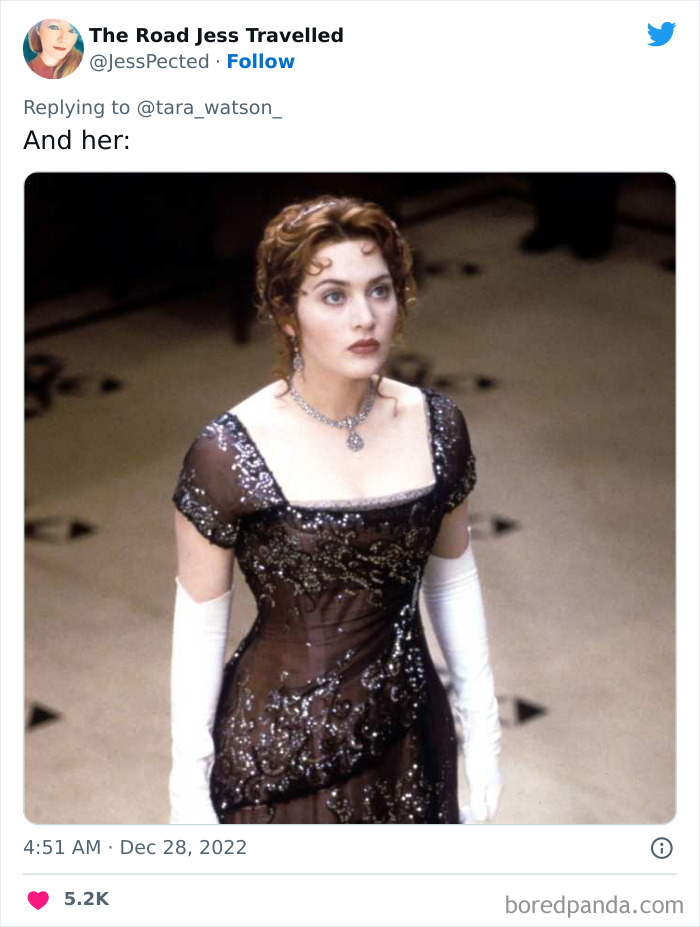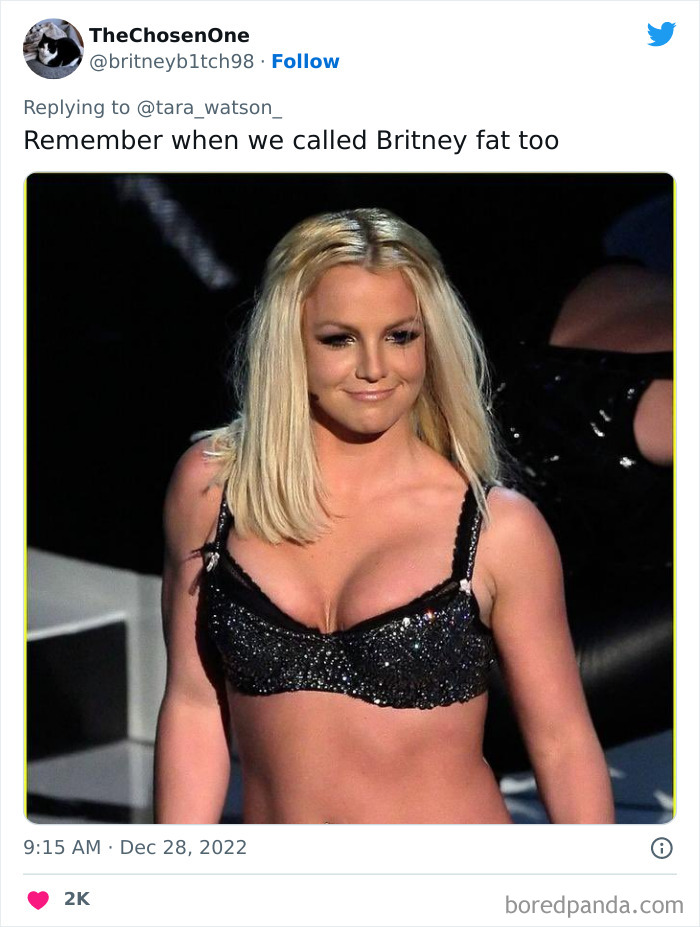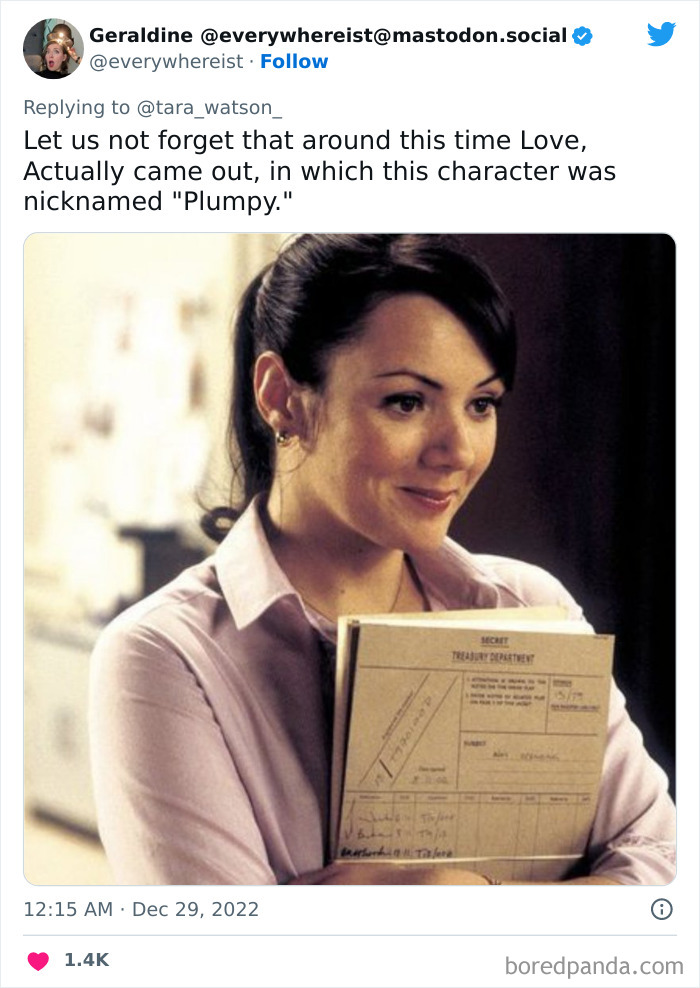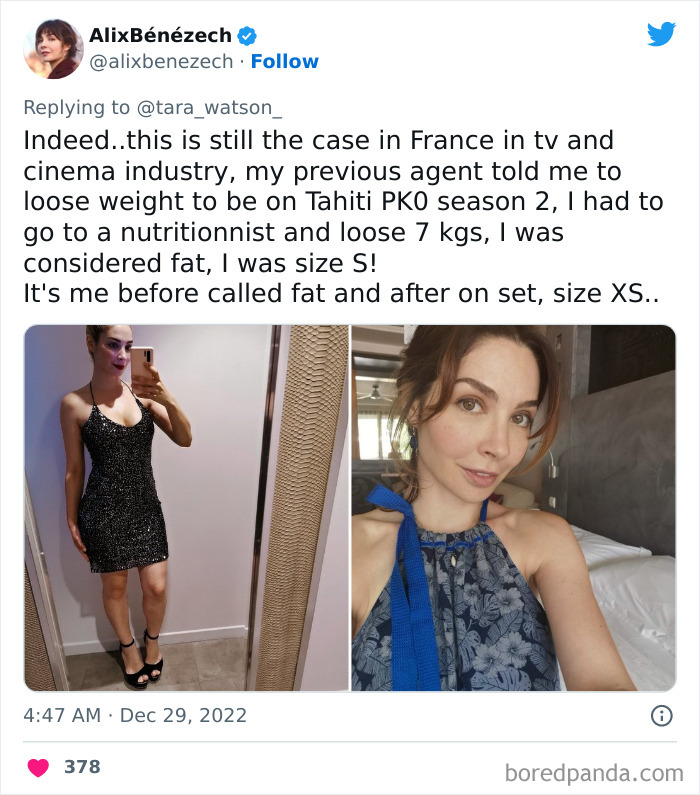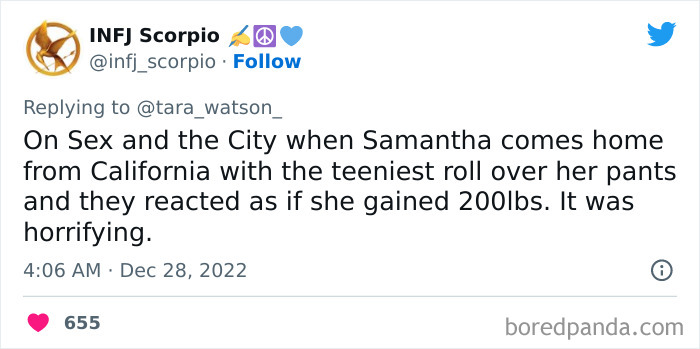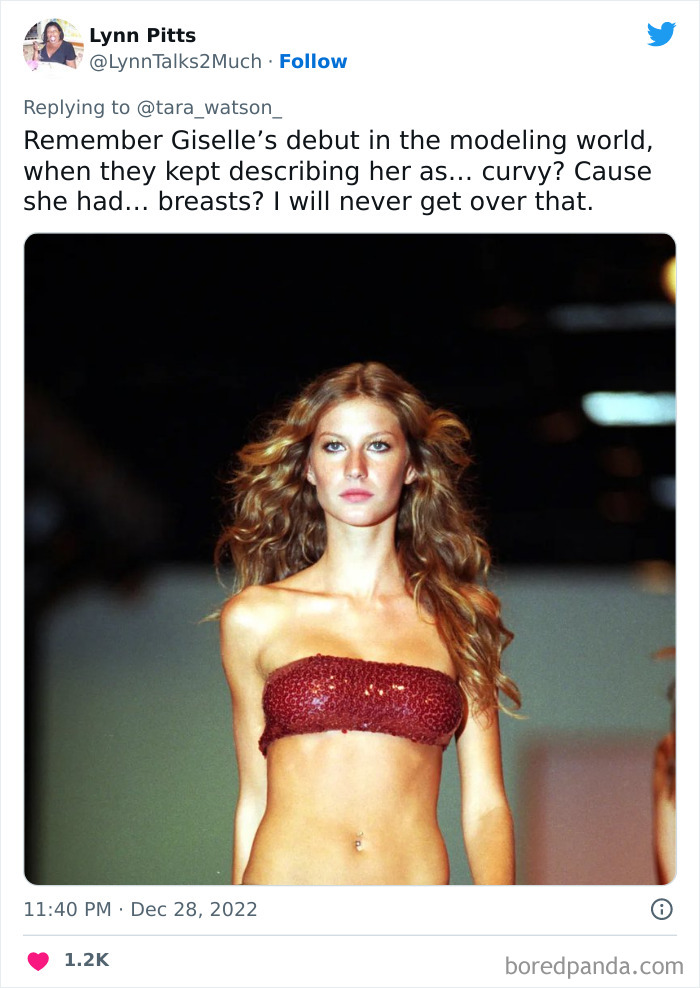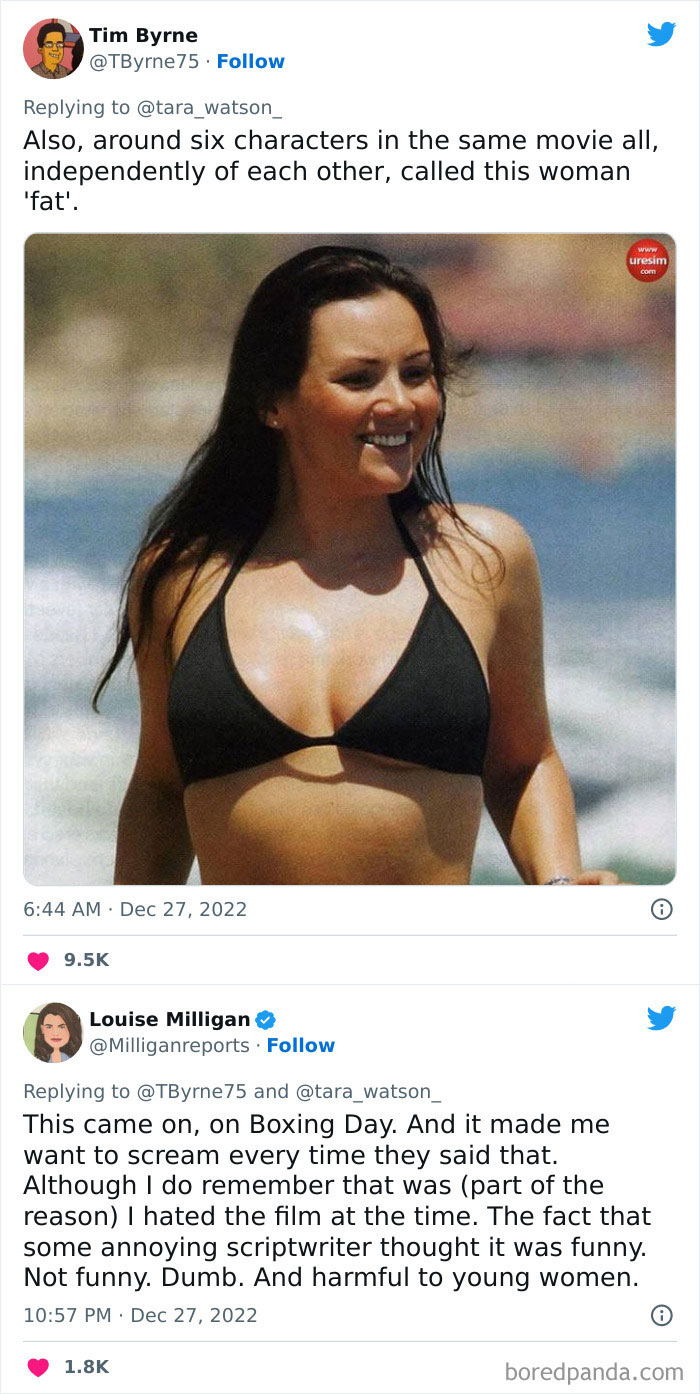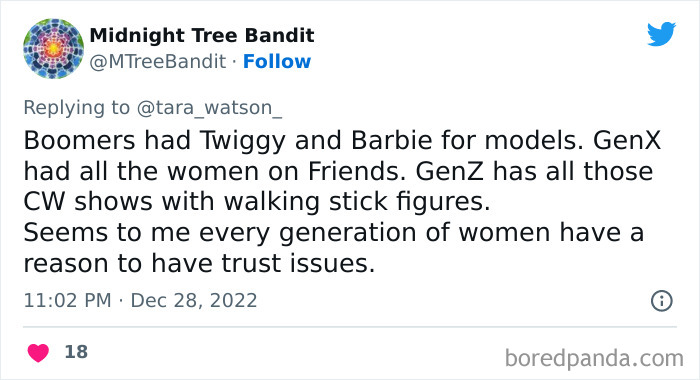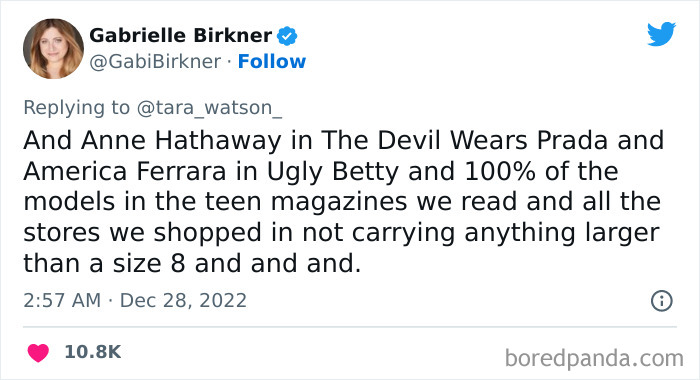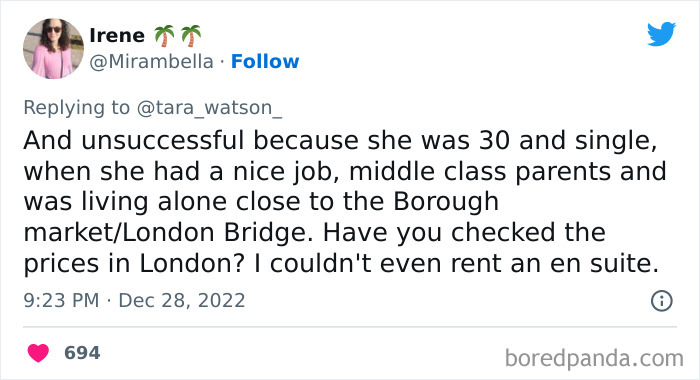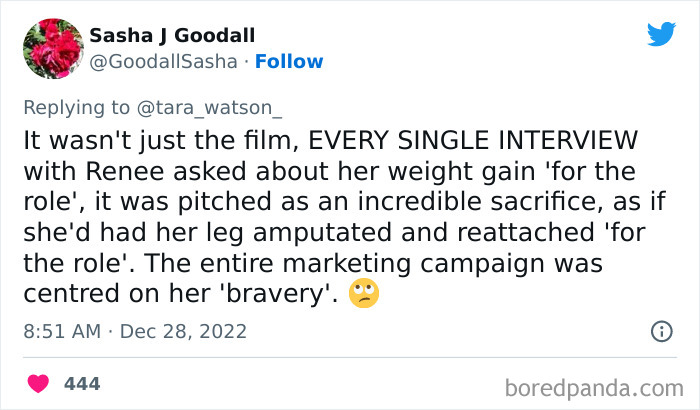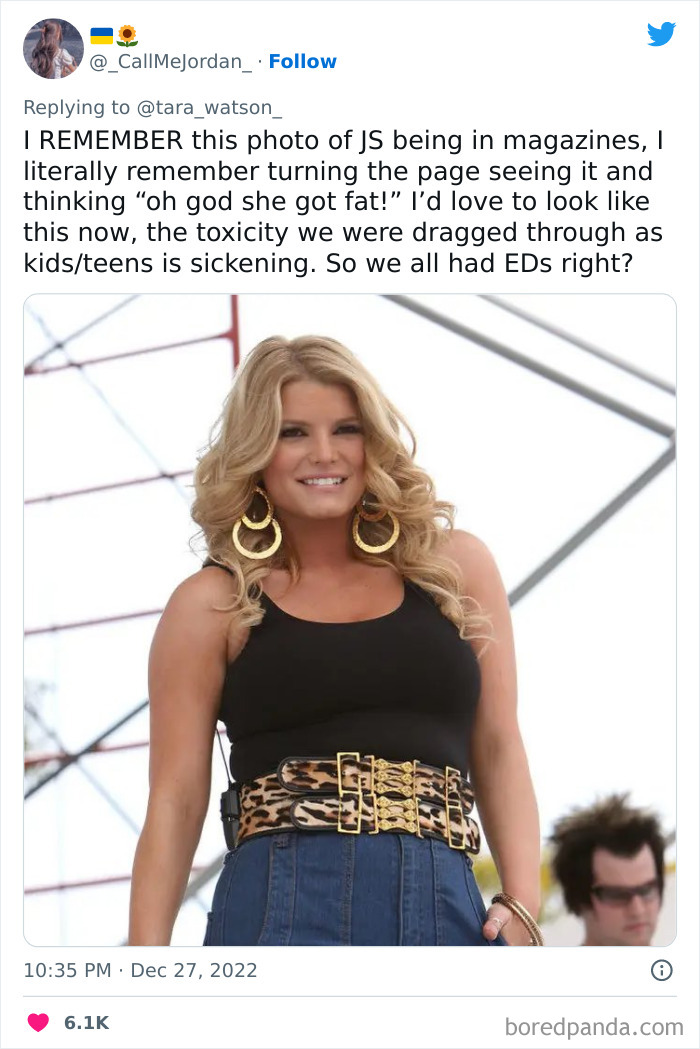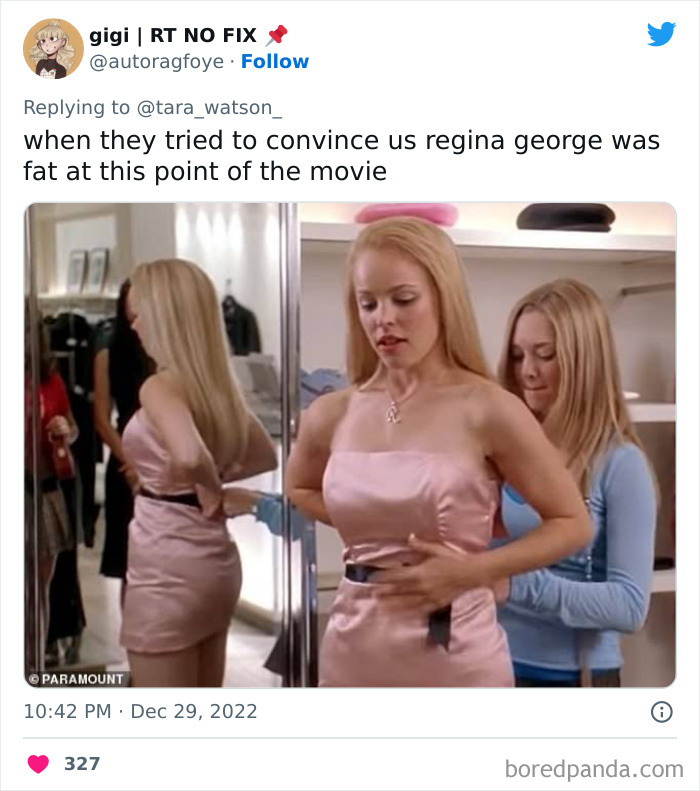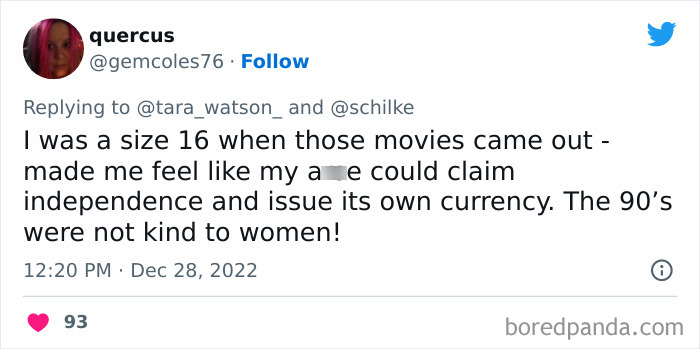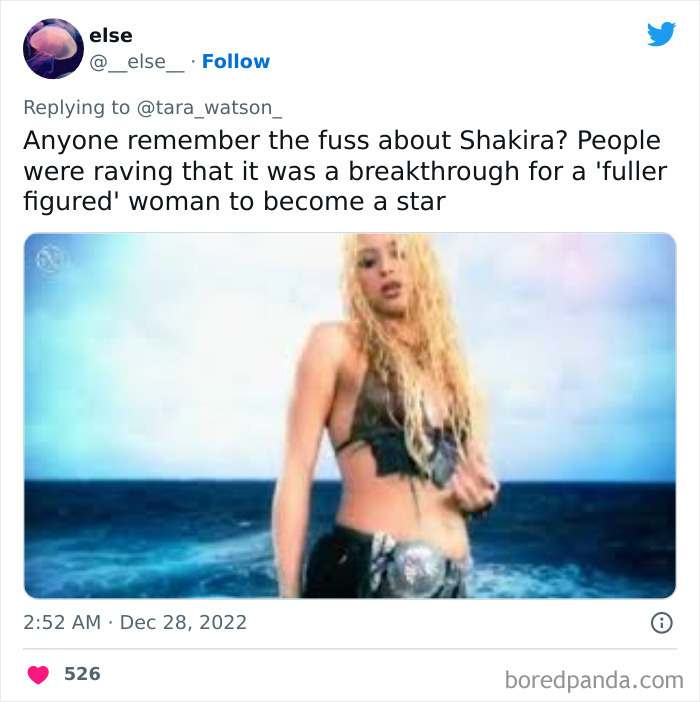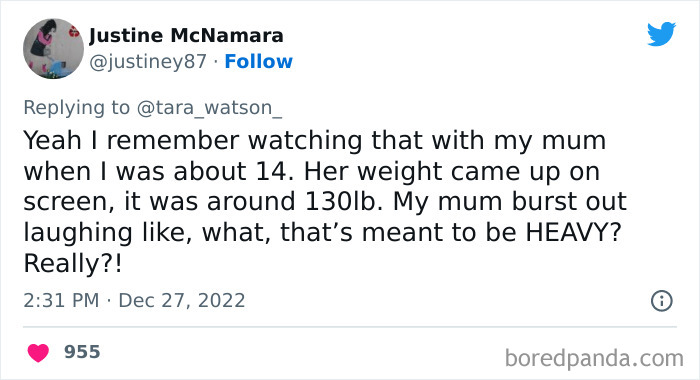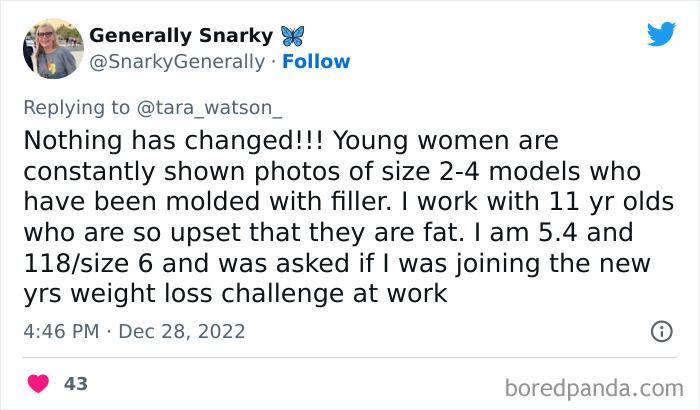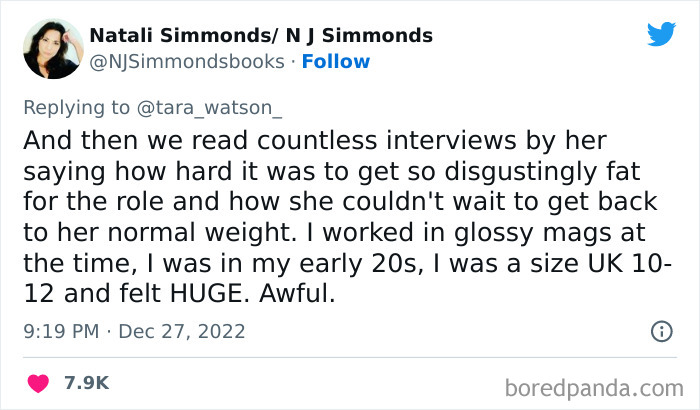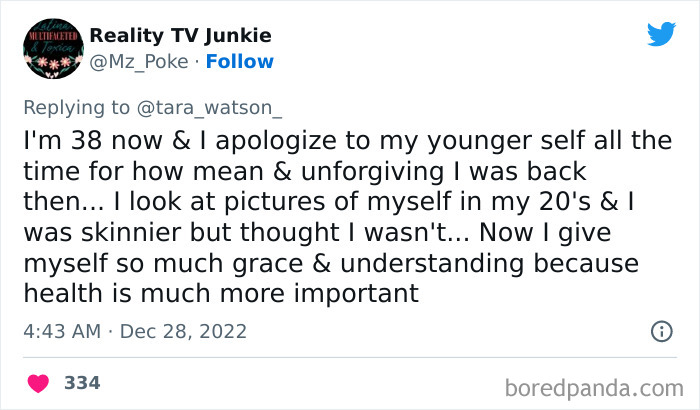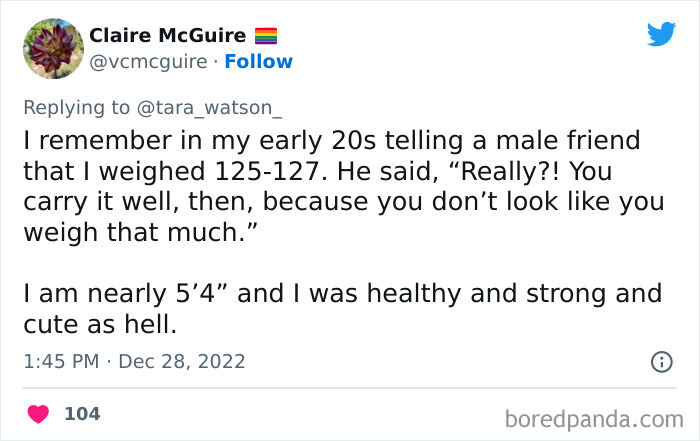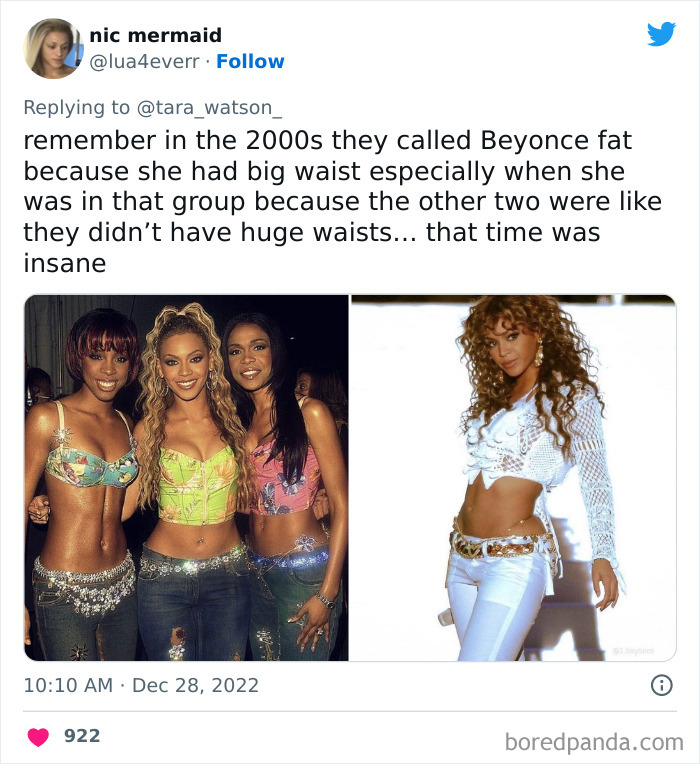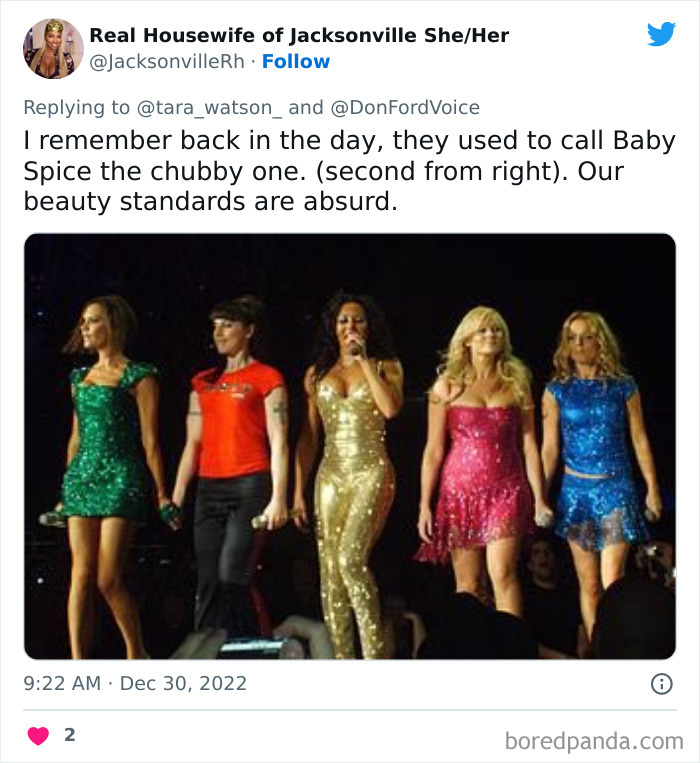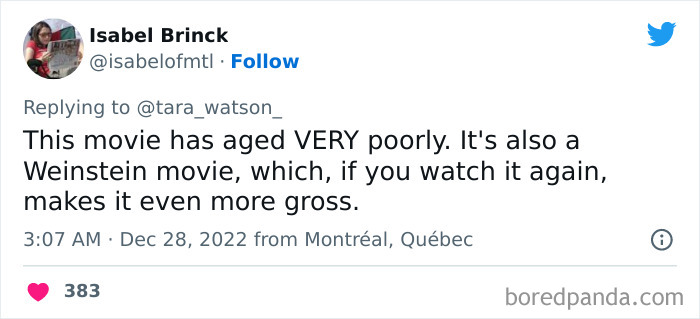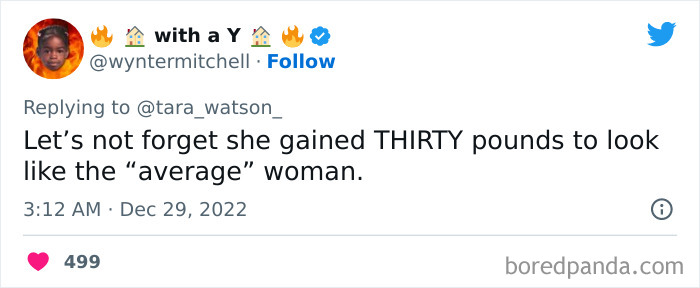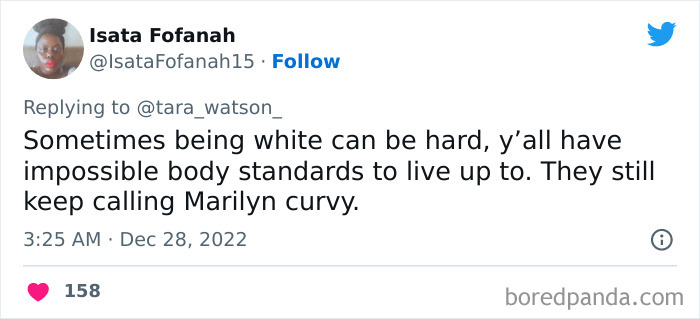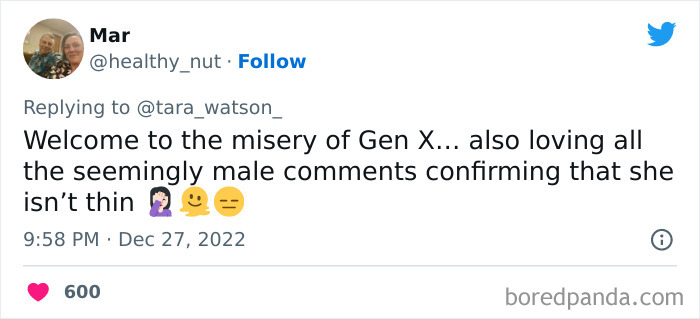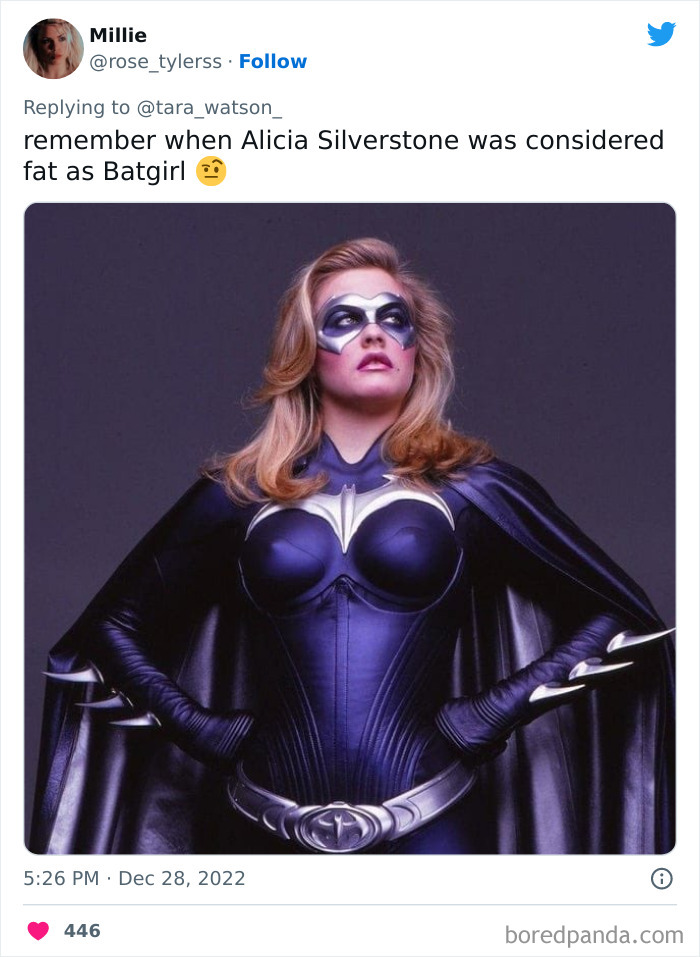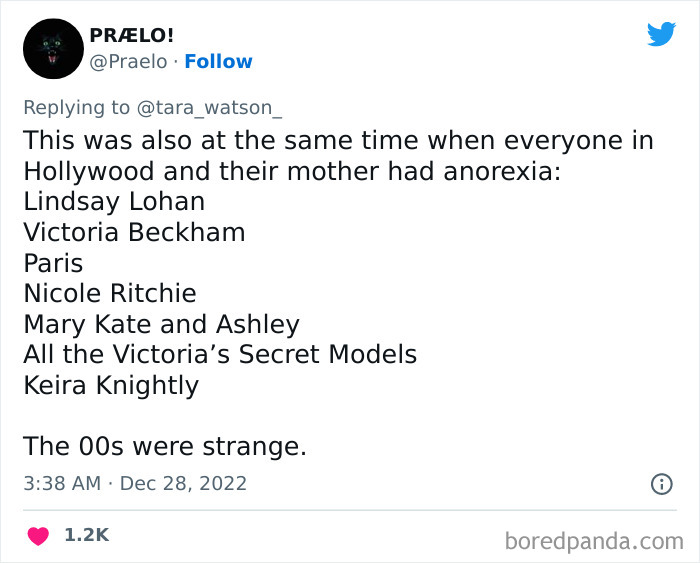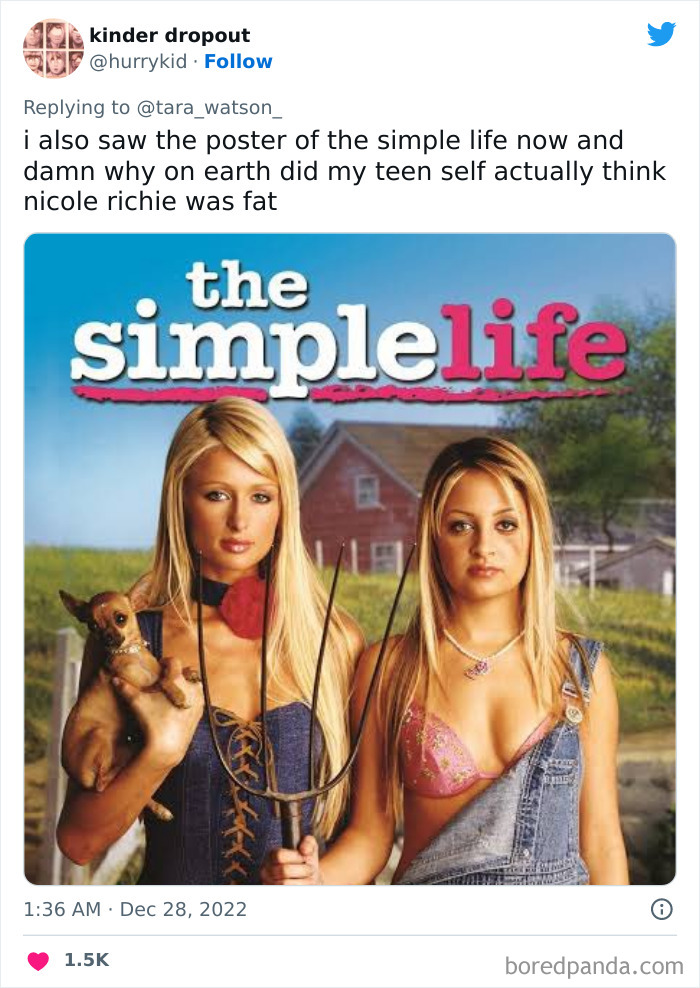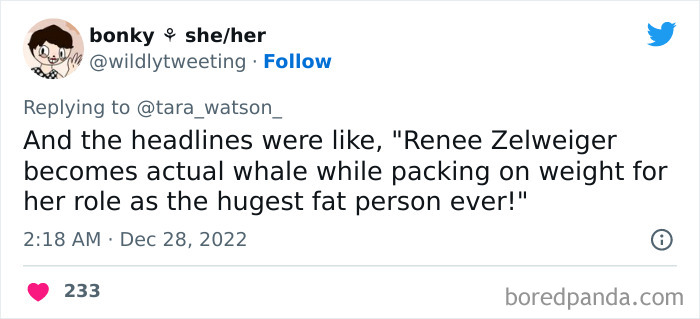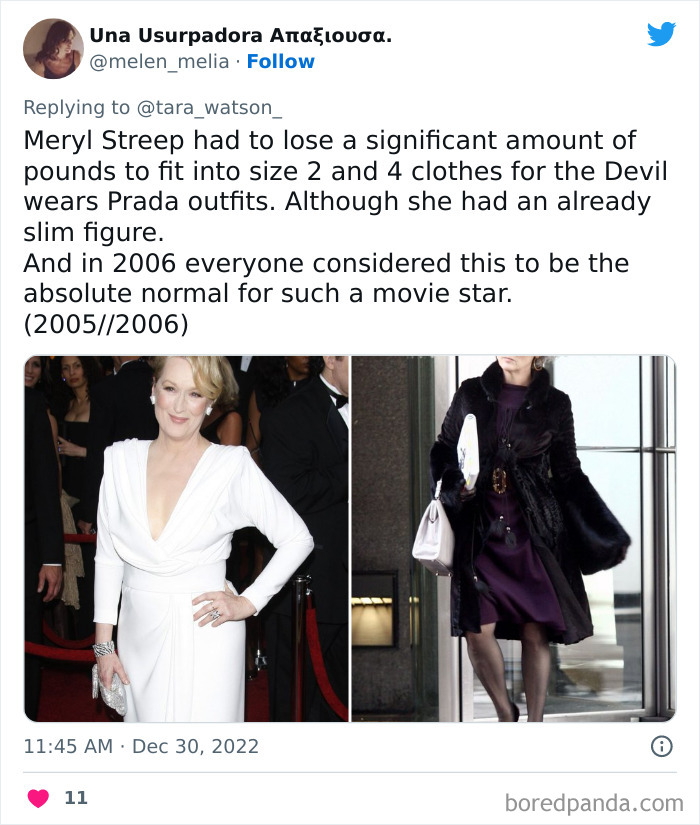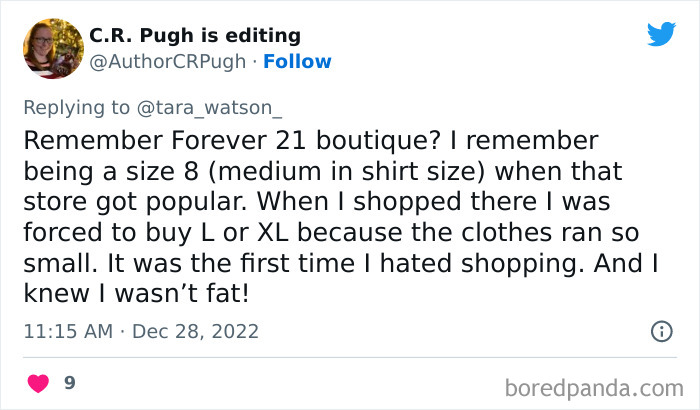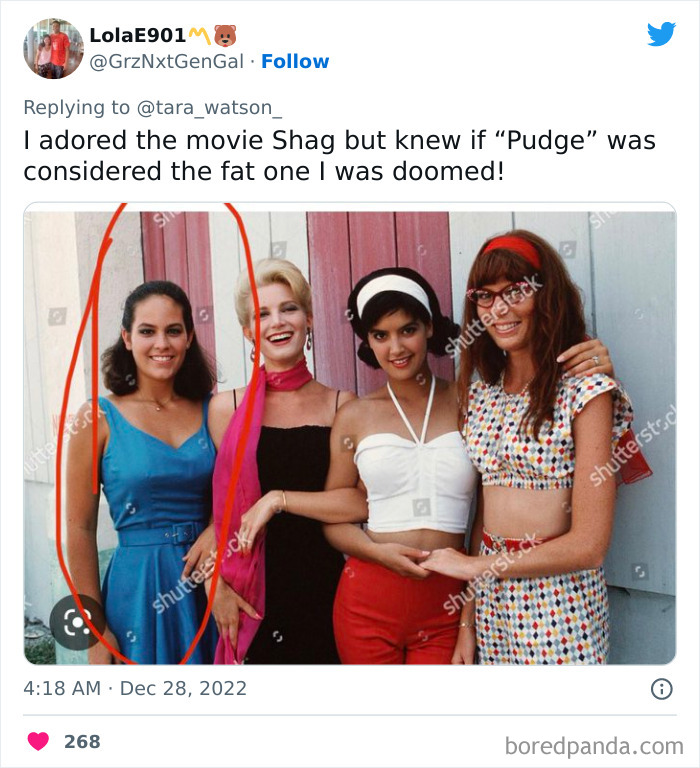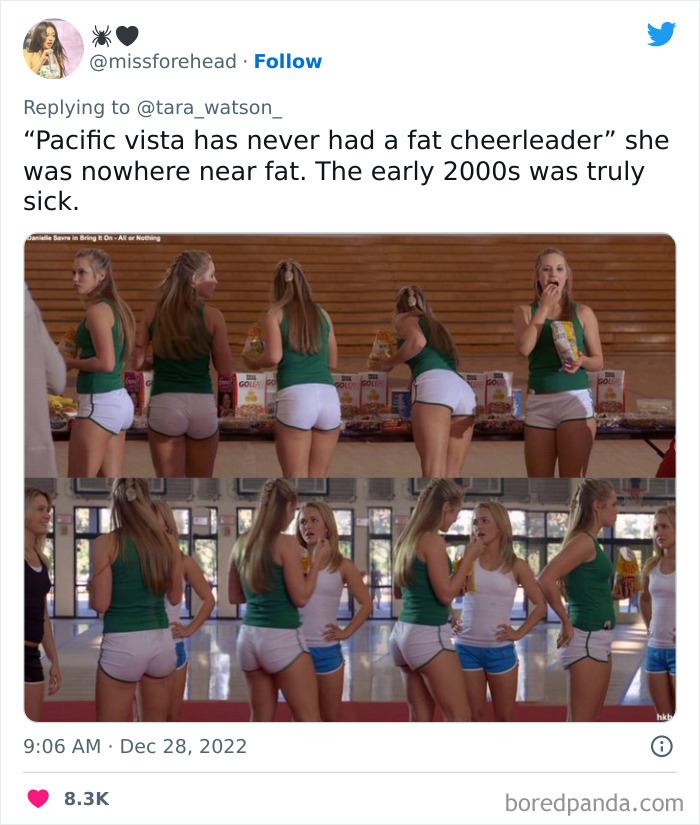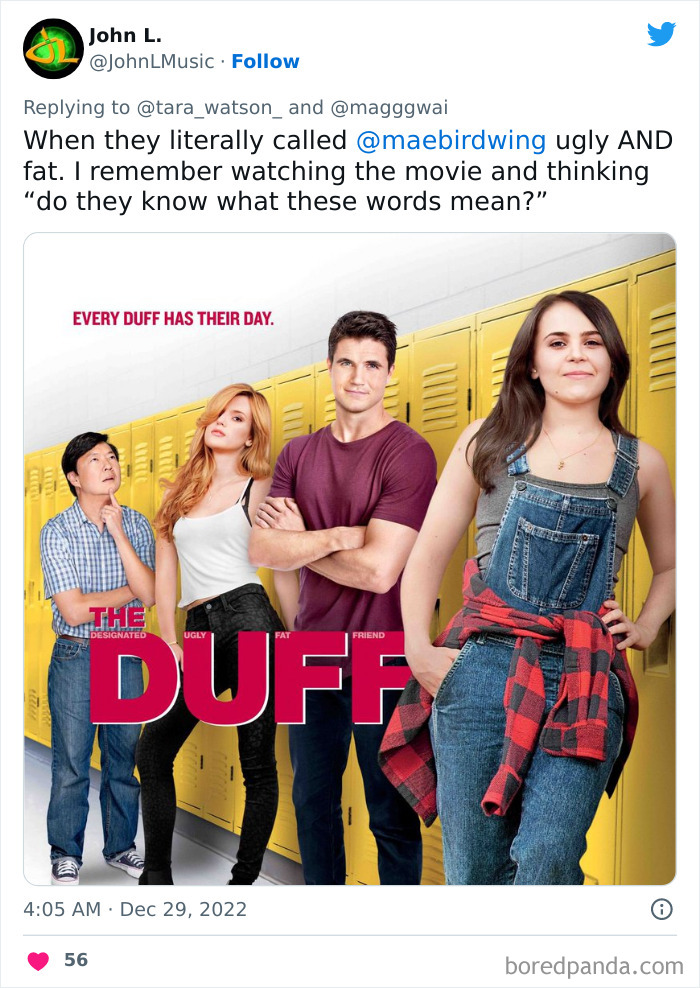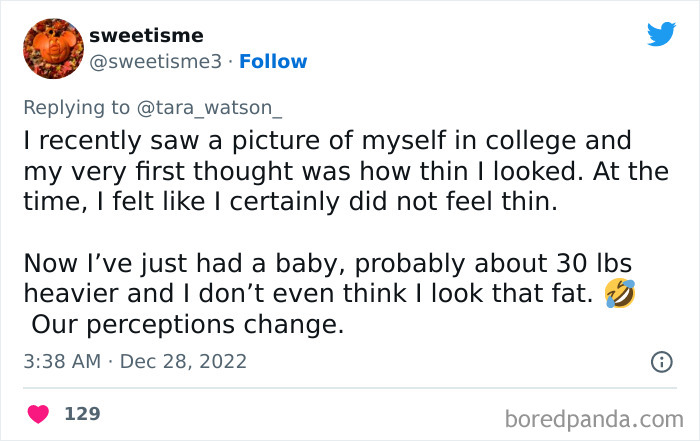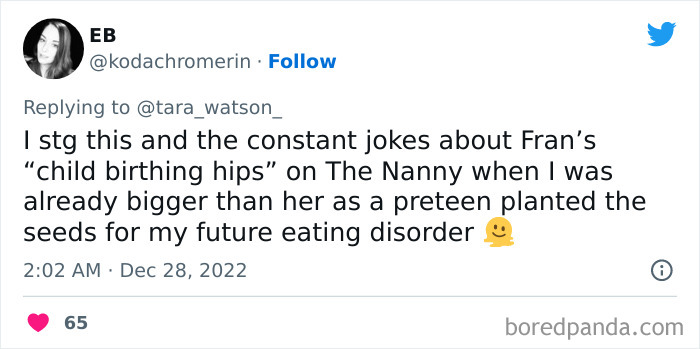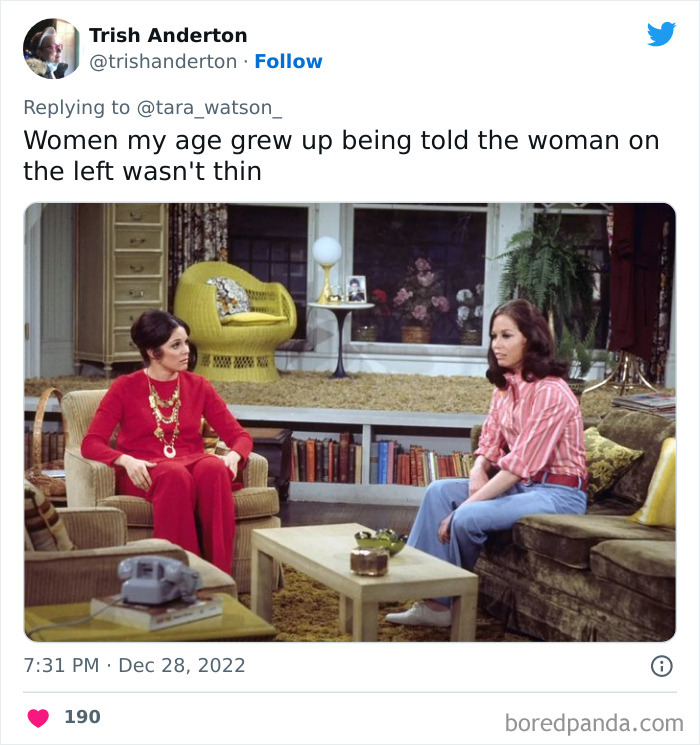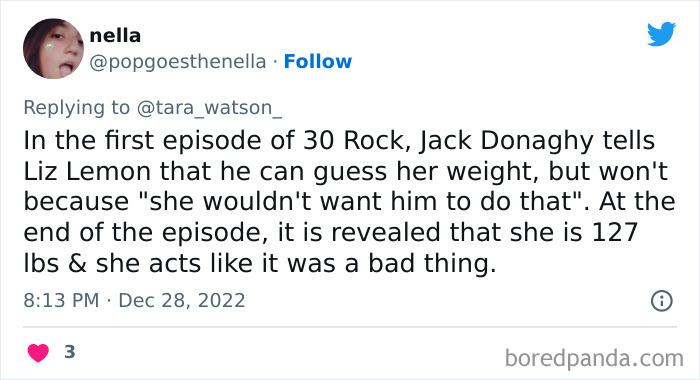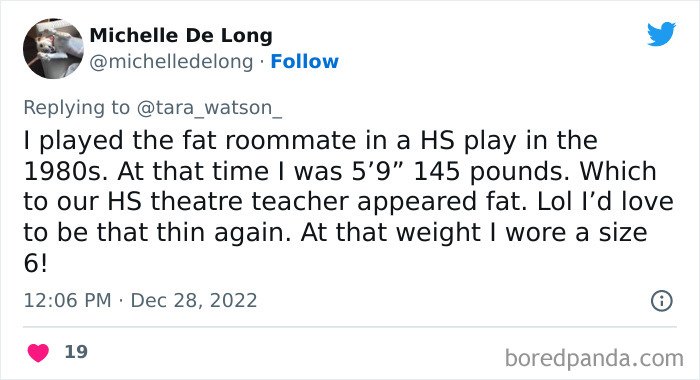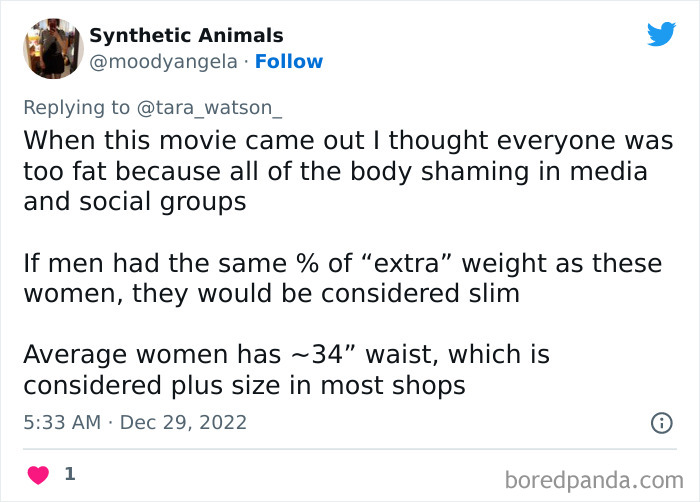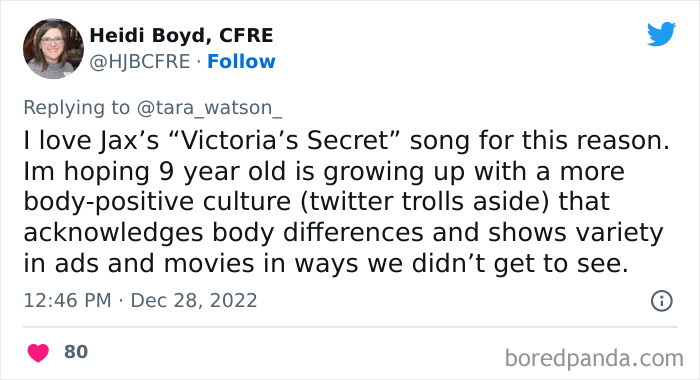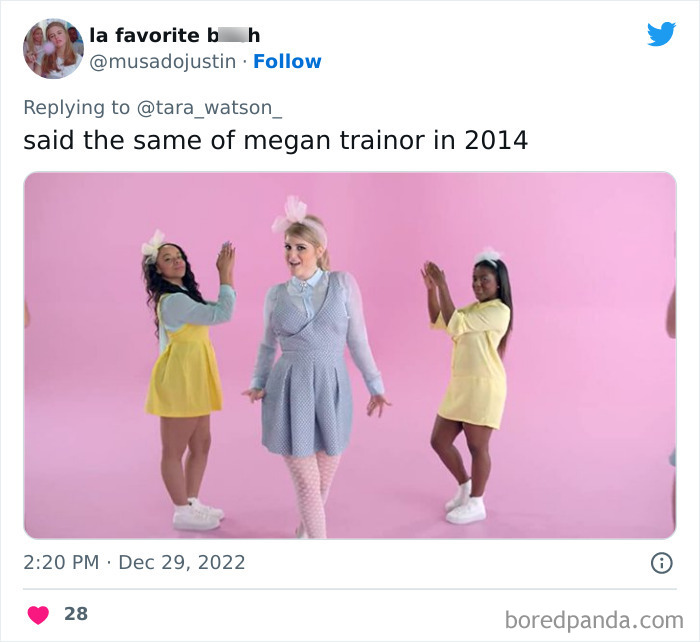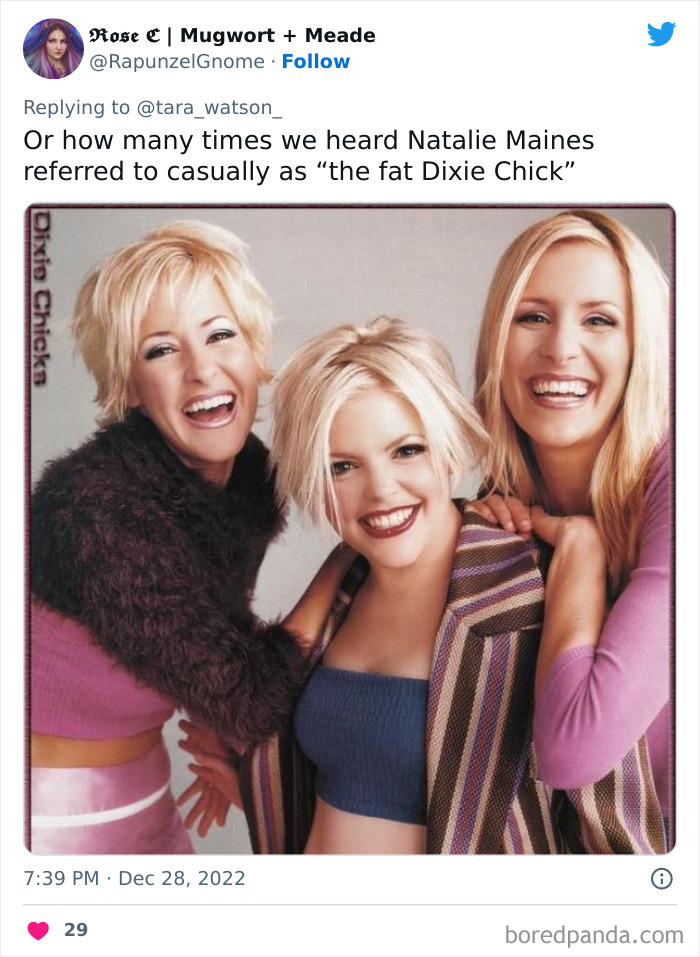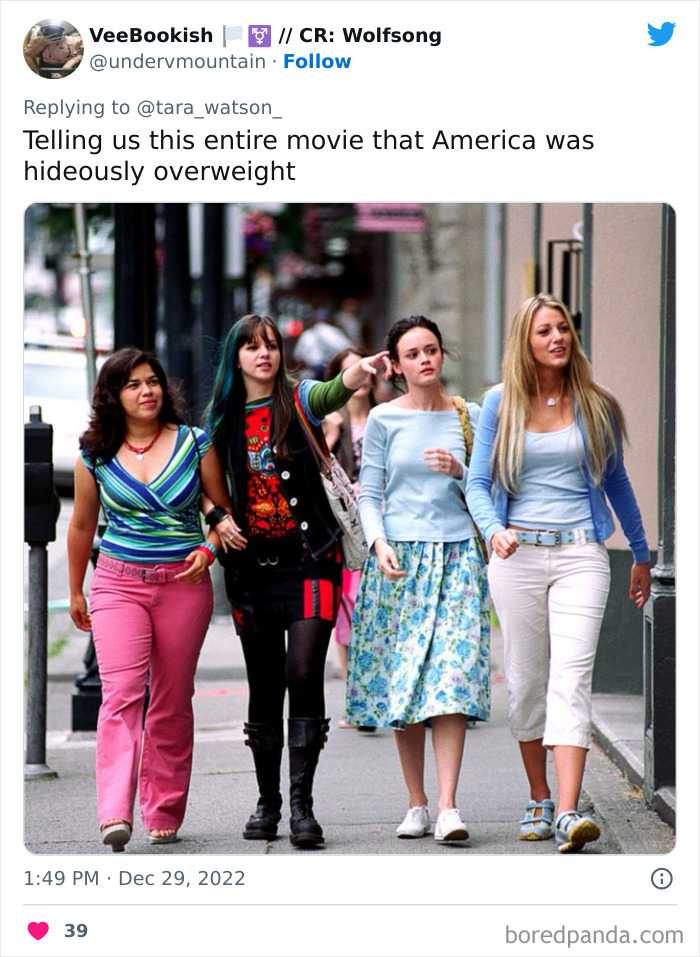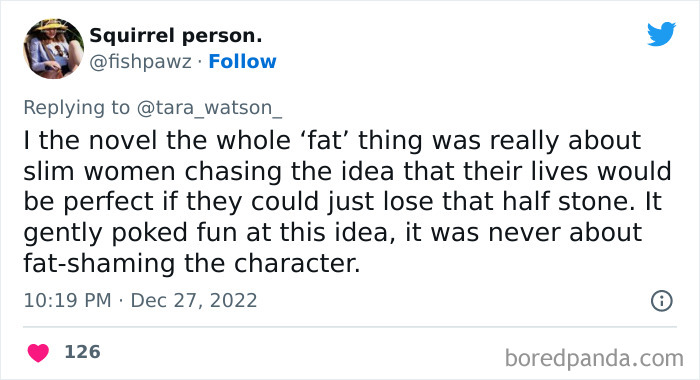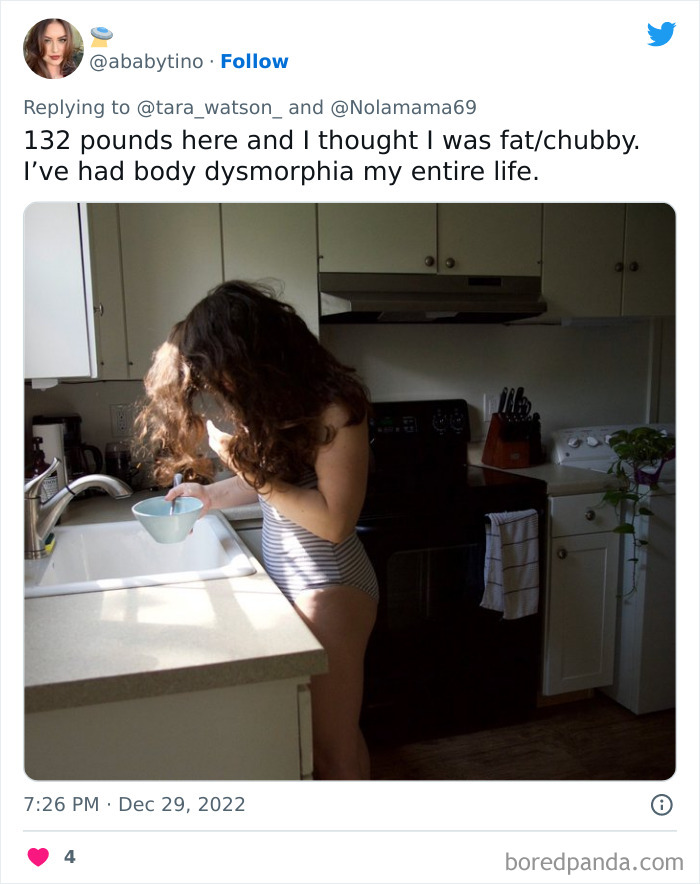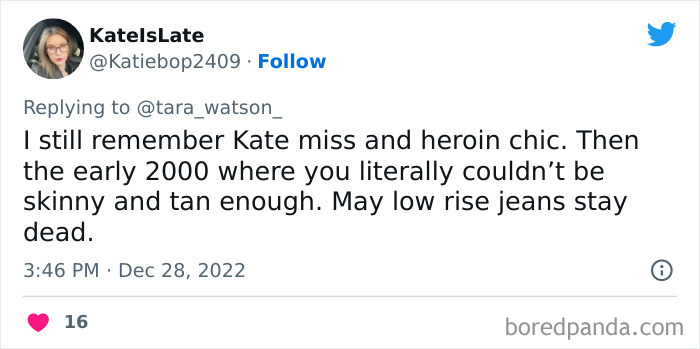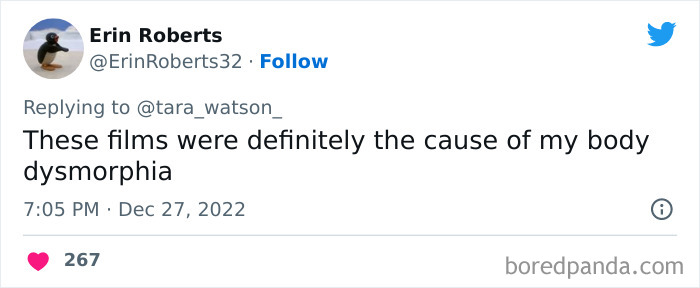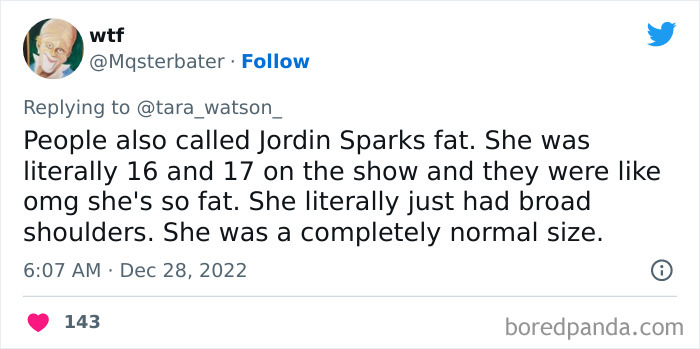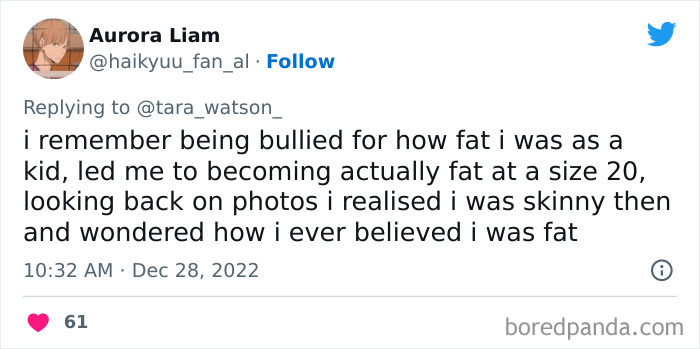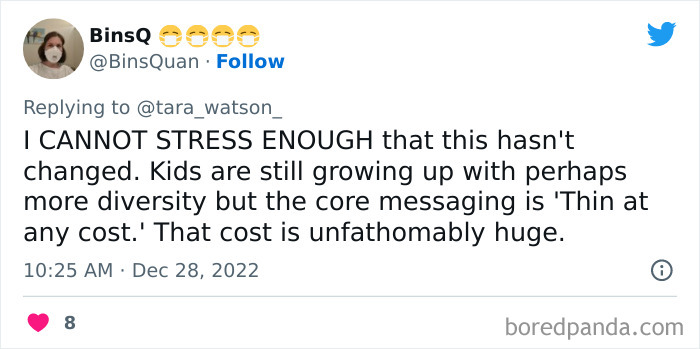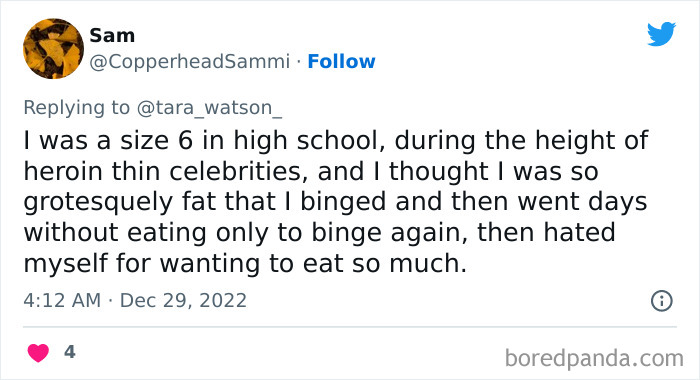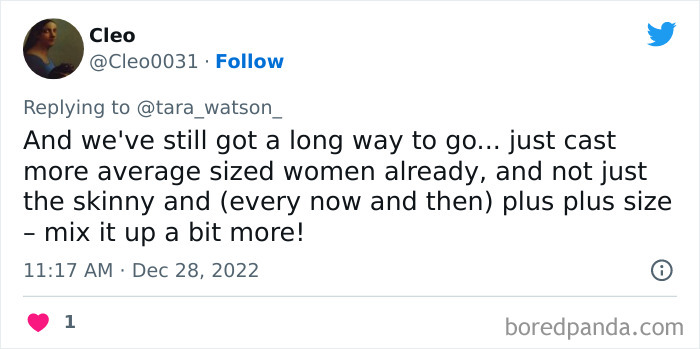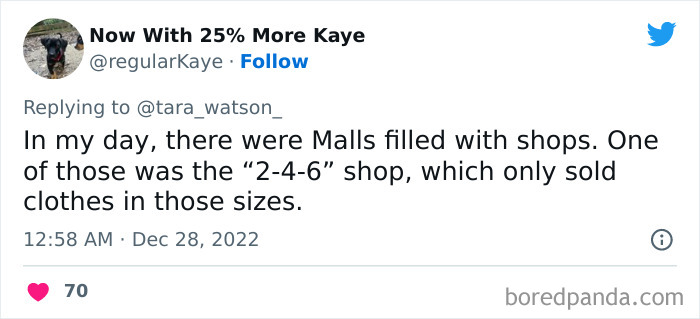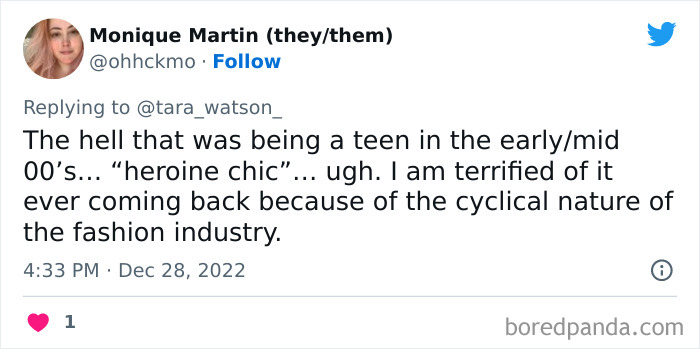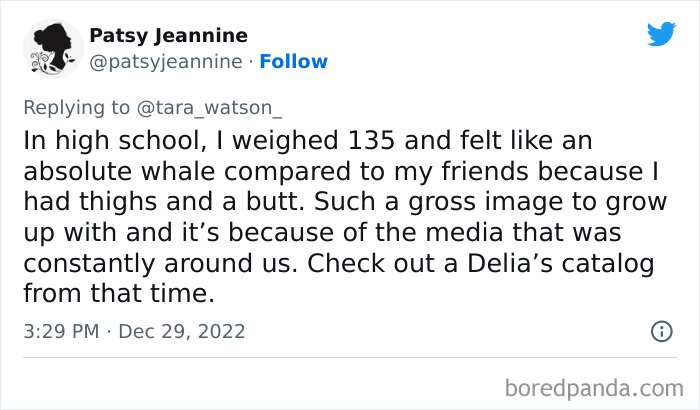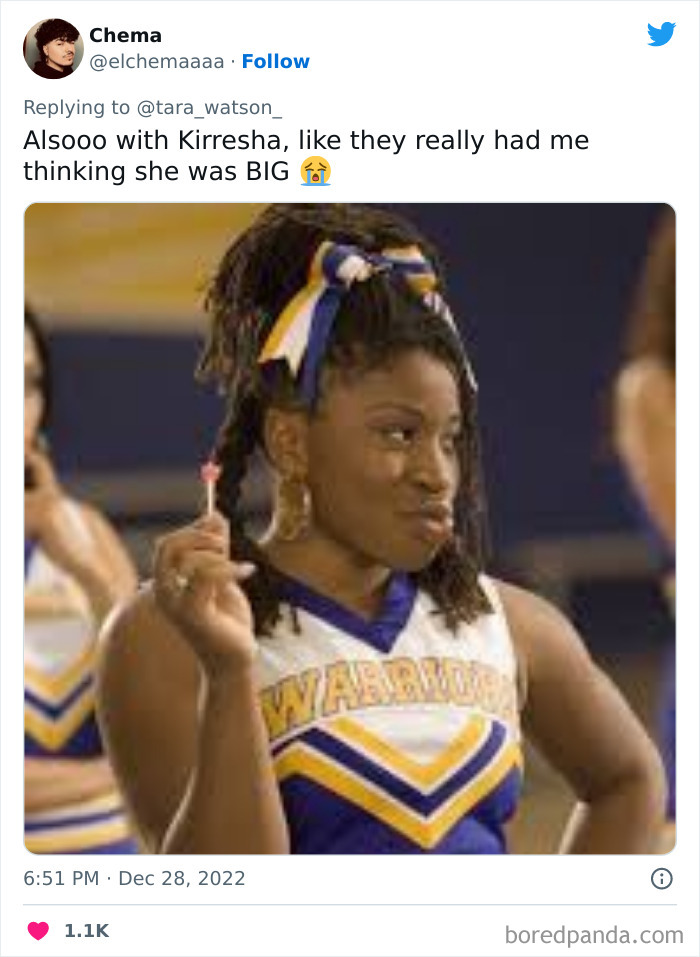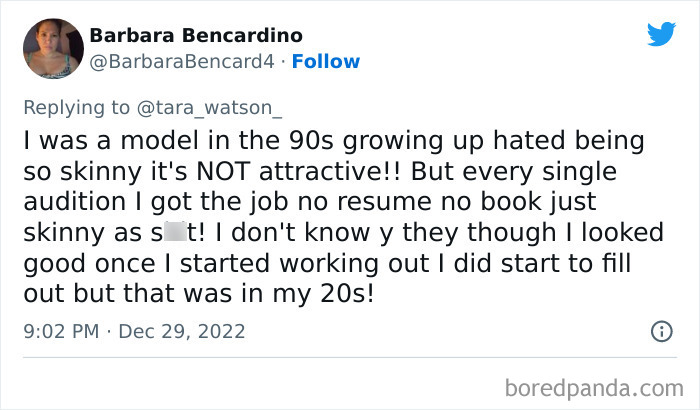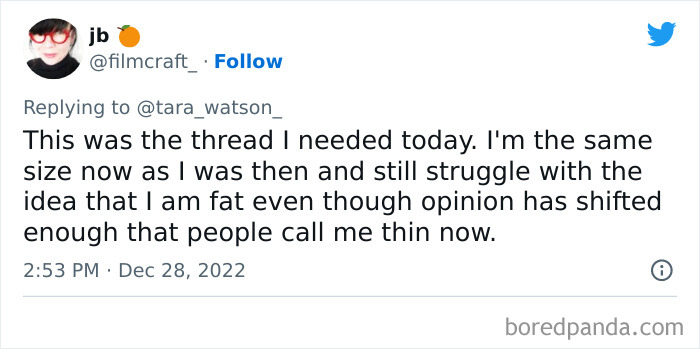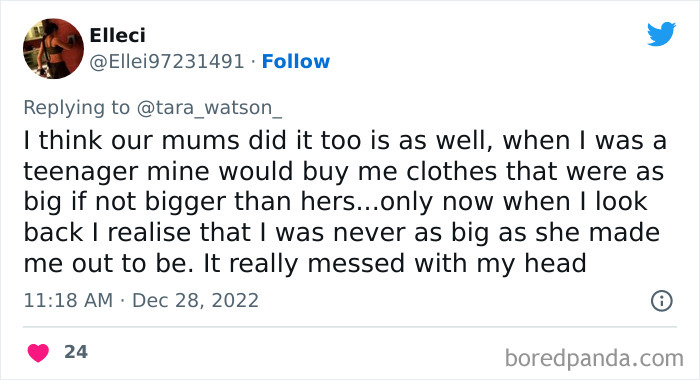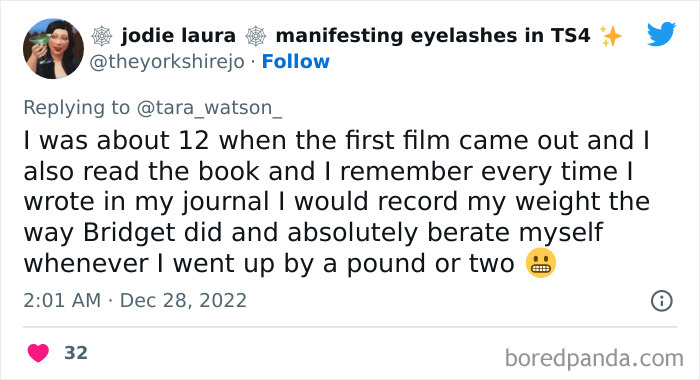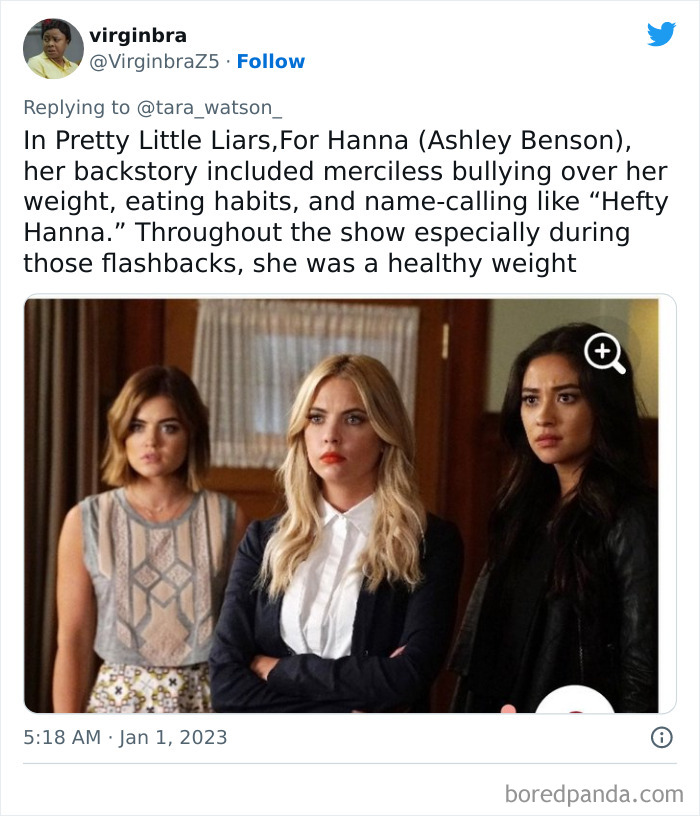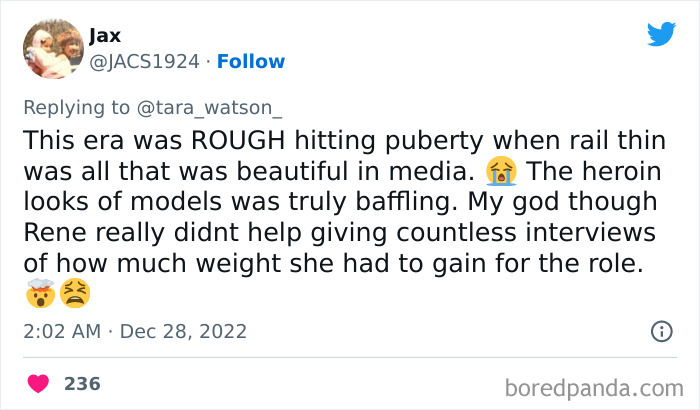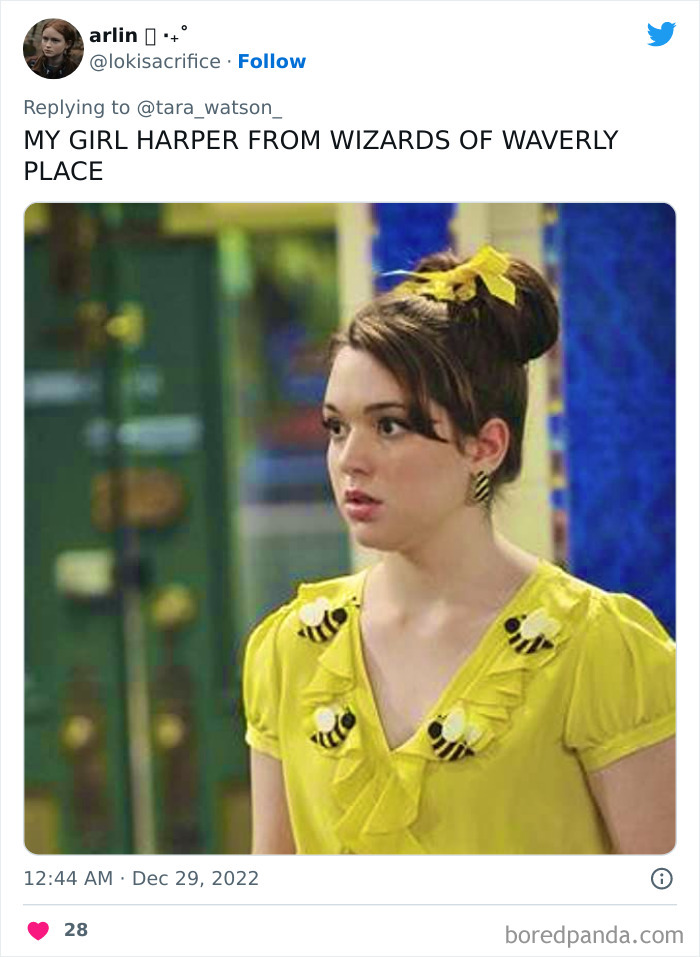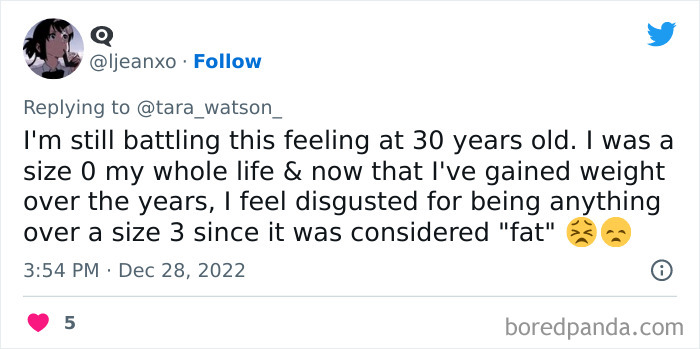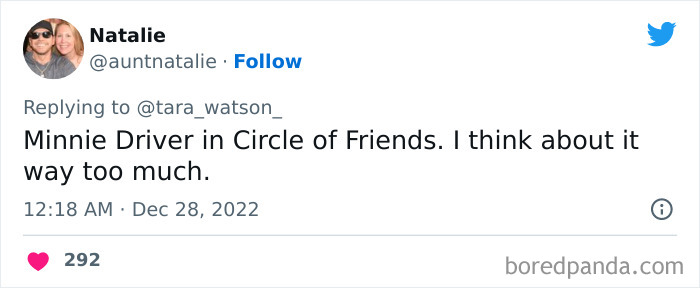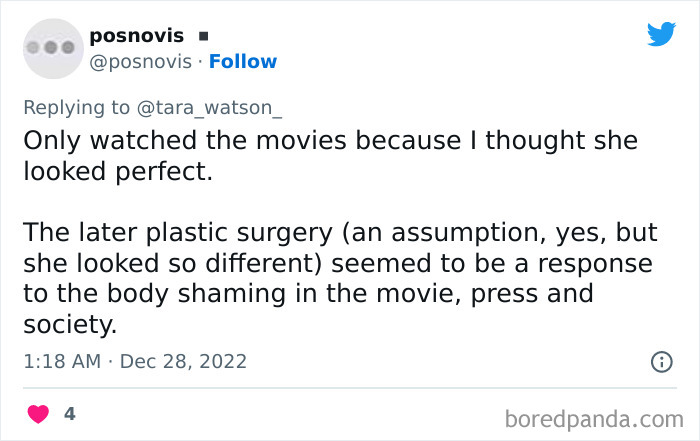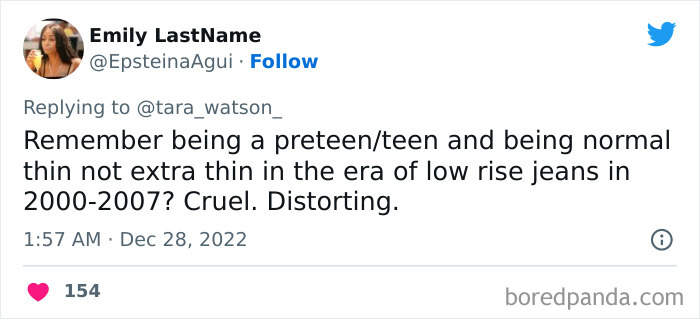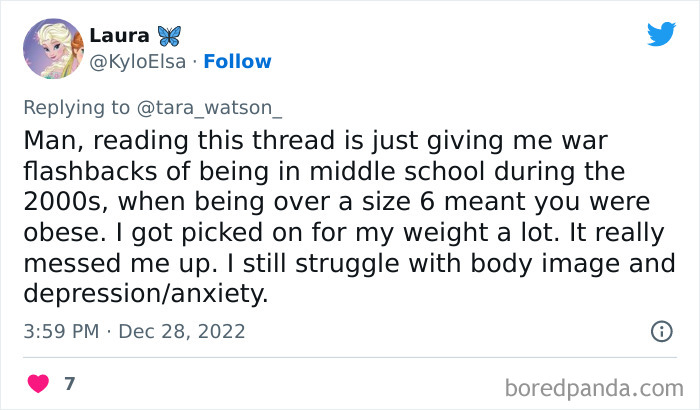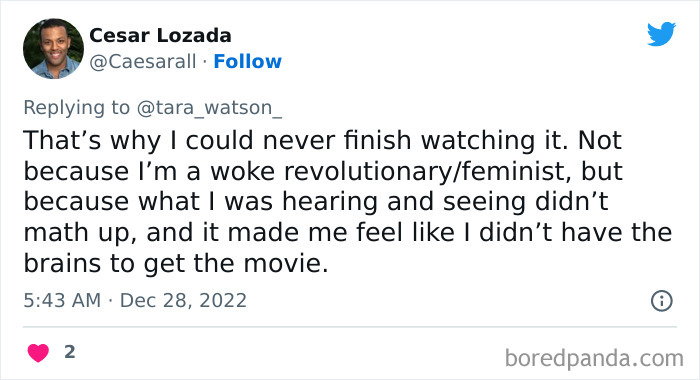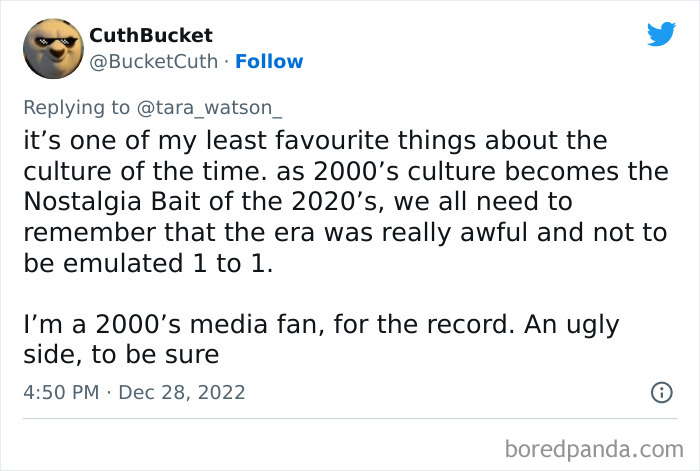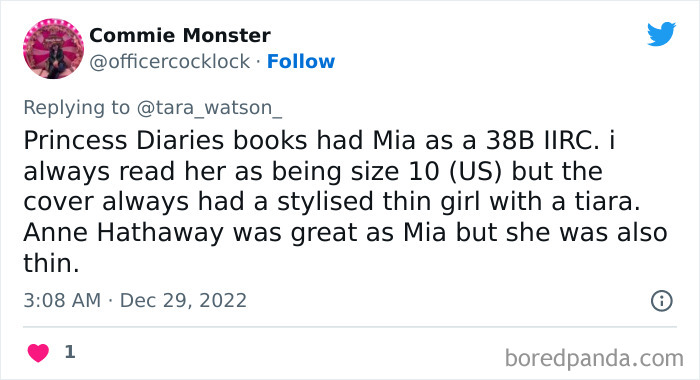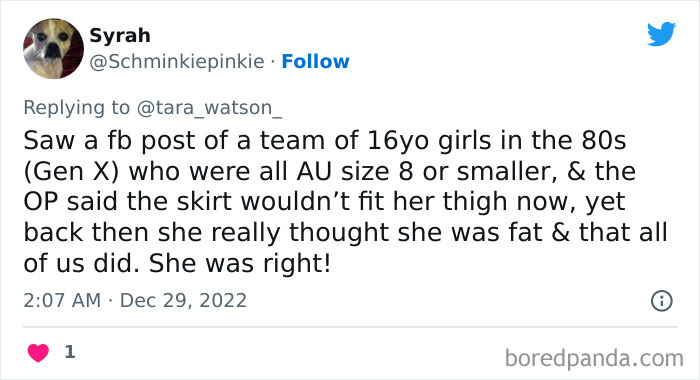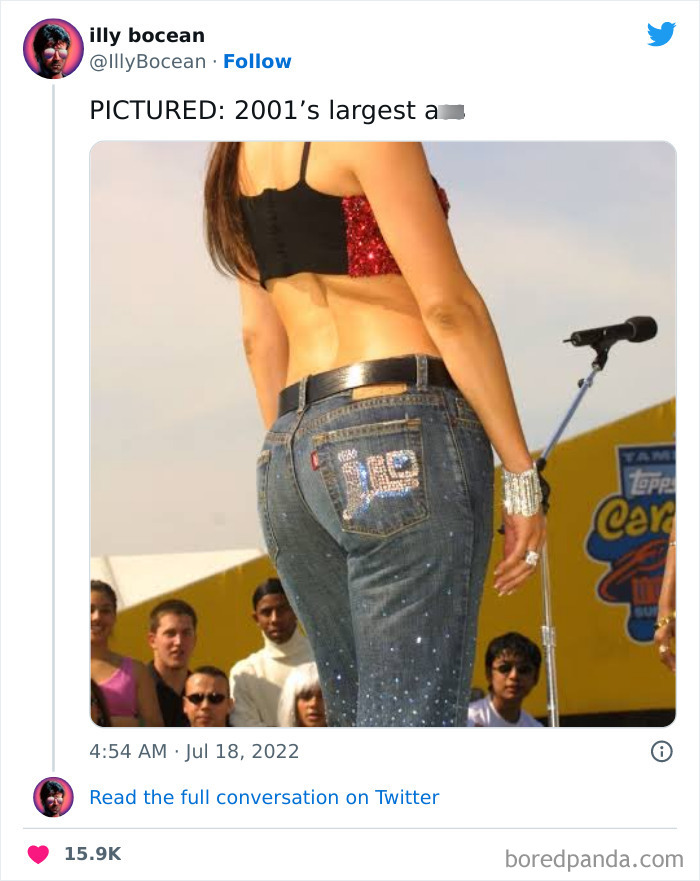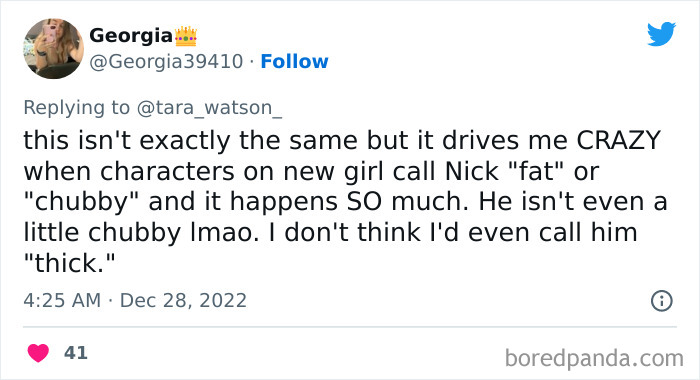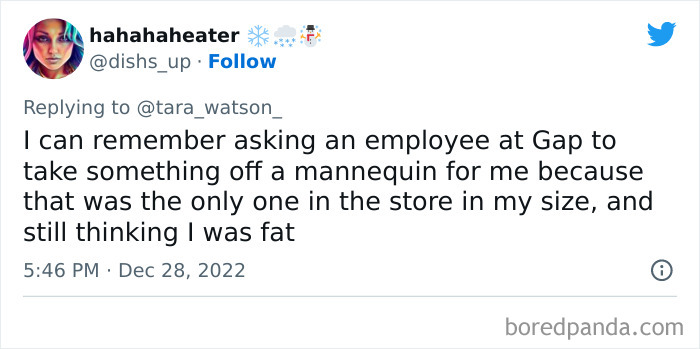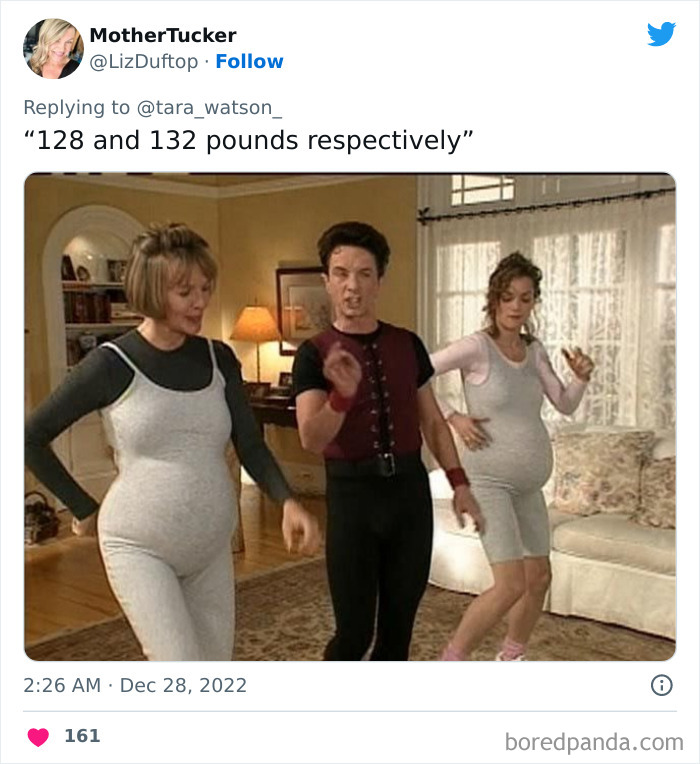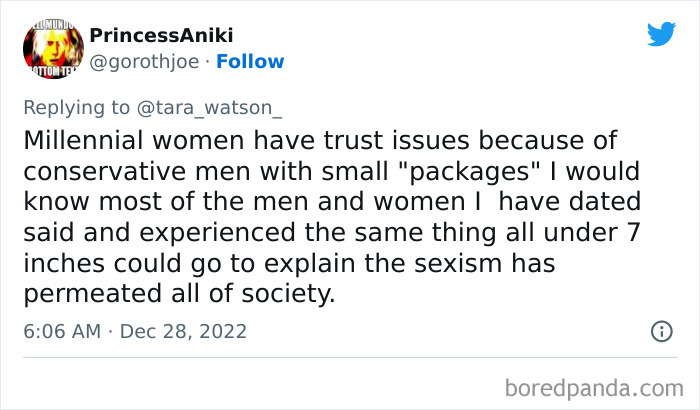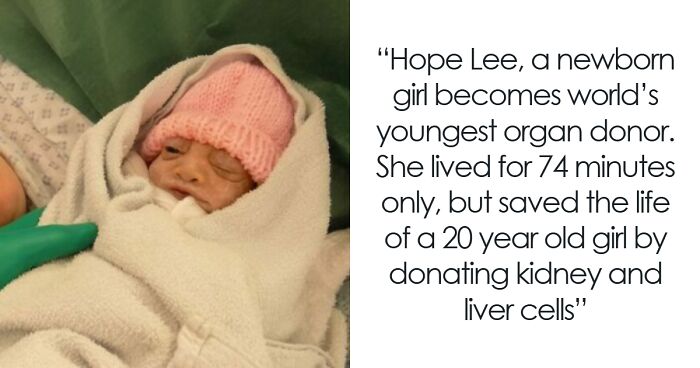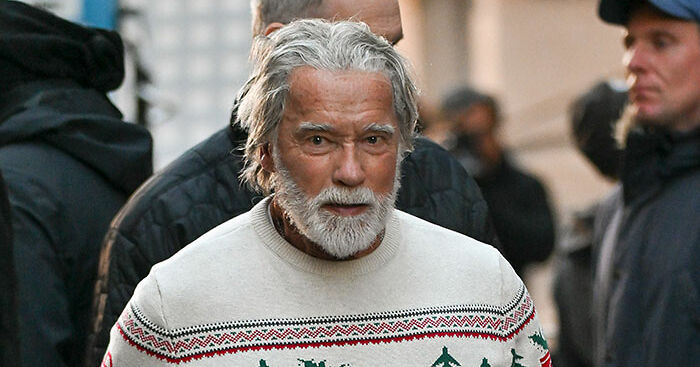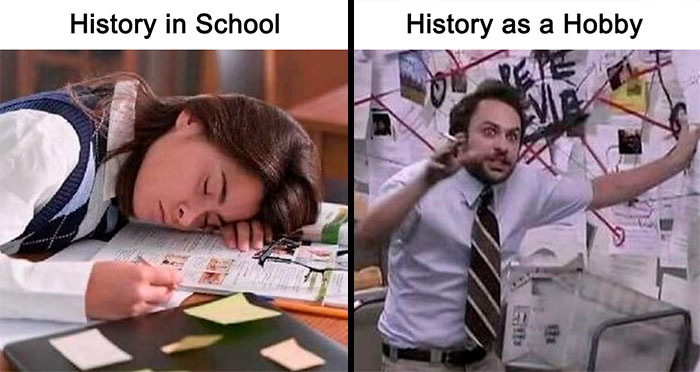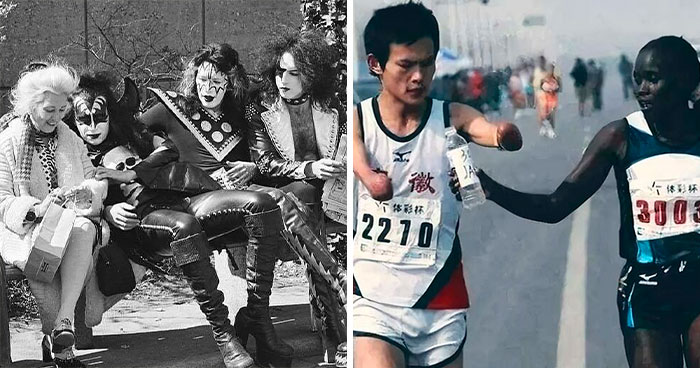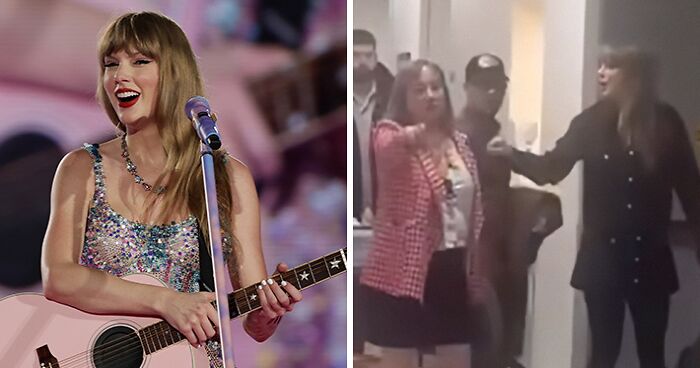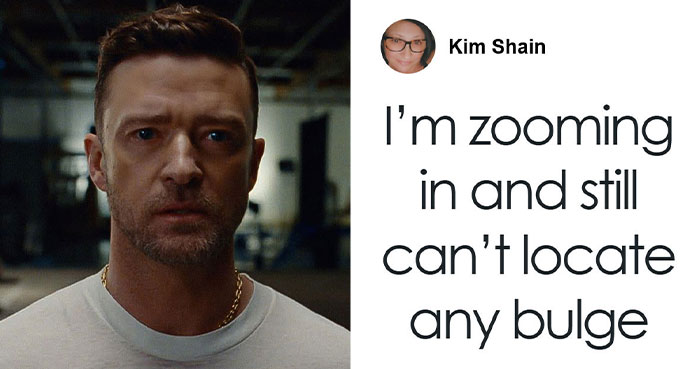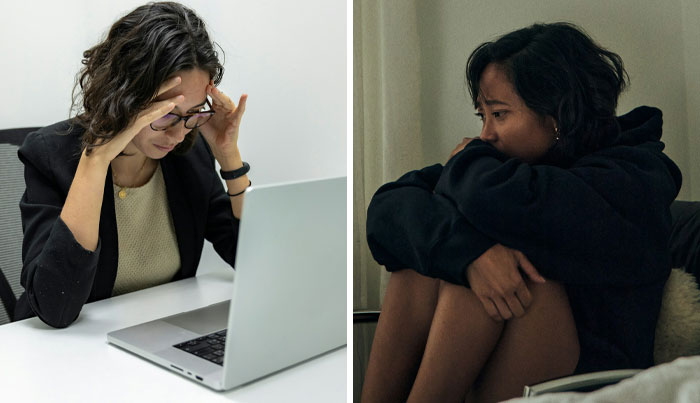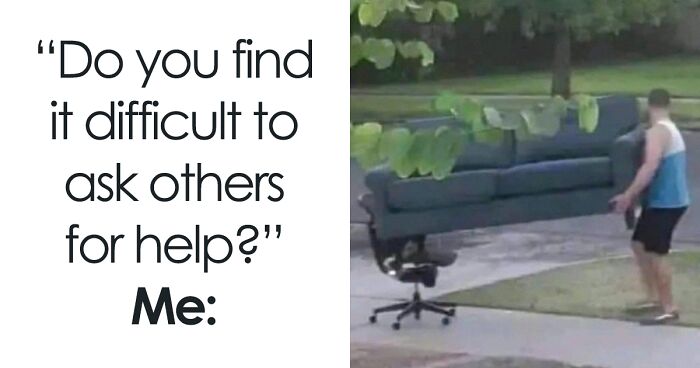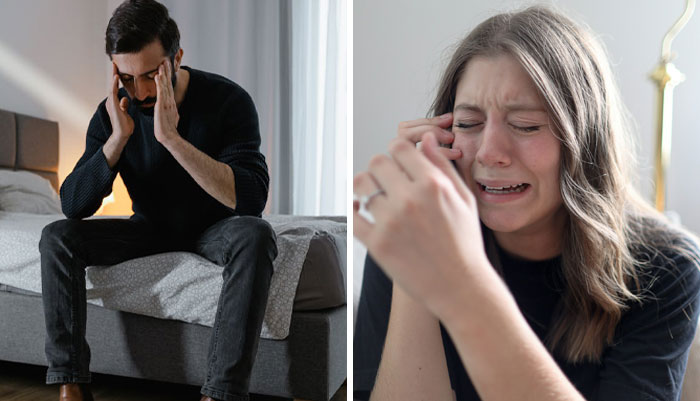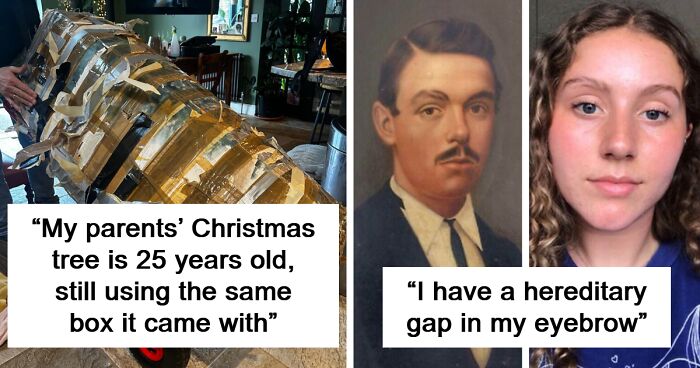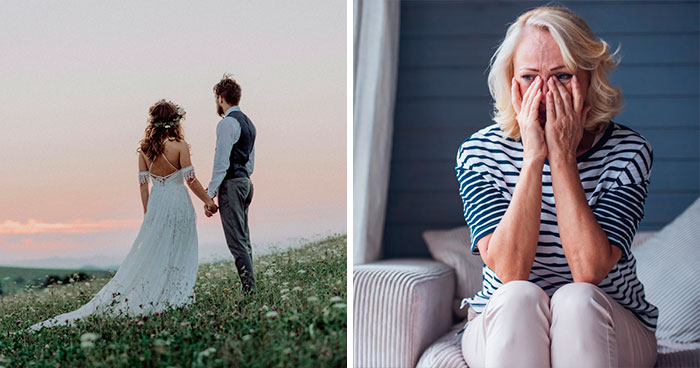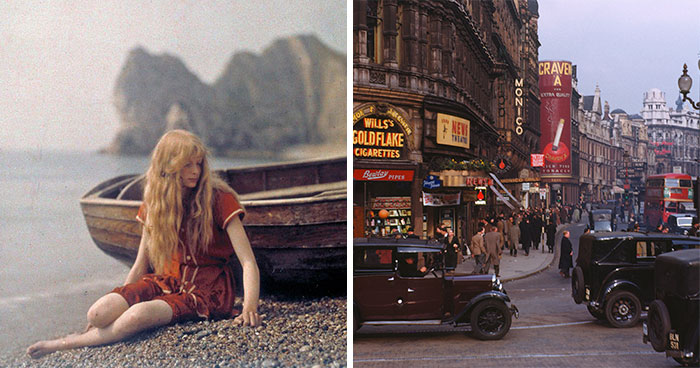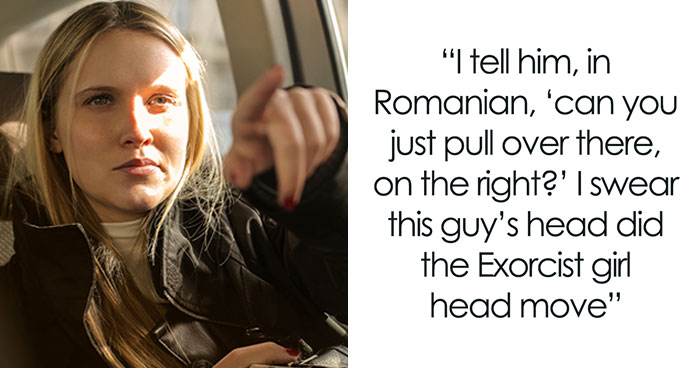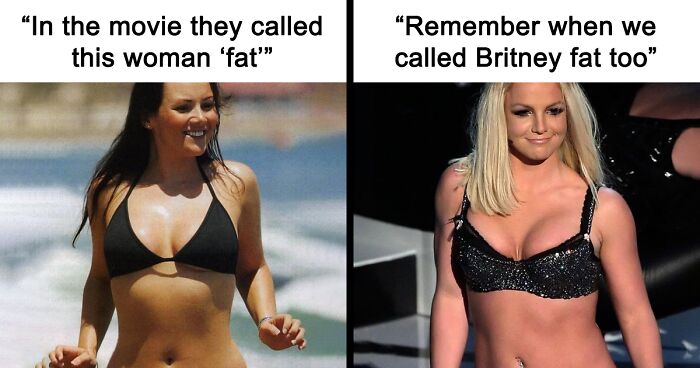
40 Millennial Women Call Out How Toxic The Media Is And Break Down What They Found Harmful When Growing Up
InterviewWhen you look back on the early 2000s, what comes to mind? Do you immediately start singing “Oops!...I Did It Again”? (Yeah yeah yeah yeah yeah) Are you transported back to the days of low-rise jeans, crop tops, cargo pants, and mini skirts? Or does your nose immediately fill with the scent of Japanese Cherry Blossom body spray from Bath & Body Works that was a cherished Christmas present to you when you were in middle school? Looking back on the early 2000s can be extremely nostalgic for many of us, but it can also be triggering.
If you ever happened to take a glance at the tabloids at the time, the headlines were ruthless, brutally mocking women for their weight, their relationship status and any other personal details they could get their hands on (or simply fabricate). Misogyny ran rampant through films, TV shows and the way we treated celebrities, so many millennials grew up being exposed to these sexist messages at impressionable ages. That’s why, now, women are speaking up about how this toxic era of media affected them, in hopes that their children's generations won’t have the same experiences.
Tara Watson sparked a conversation on Twitter last week, by calling out the 2001 film Bridget Jones’s Diary for portraying the lead character as “fat” and allowing that to be a running joke in the film. Plenty of other women then joined in on the conversation, so below, you’ll find some of their criticisms for the media of the time.
Keep reading to also find an interview with Tara about what inspired her to start this conversation, as well as interviews with a few of the women who chimed into the conversation on Twitter: the hosts of the Read, Watch or DNF podcast and blogger and content creator Magali Vaz. Be sure to upvote all of the posts that encapsulate how you felt during the early 2000s, and let us know in the comments if this era of media had any impact on you. Then if you’re interested in reading another Bored Panda article calling out blatant sexism that still happens today, you can find that right here!
After Tara Watson called out the film Bridget Jones's Diary for giving women "trust issues", many others shared how the media of the early 2000s negatively affected them
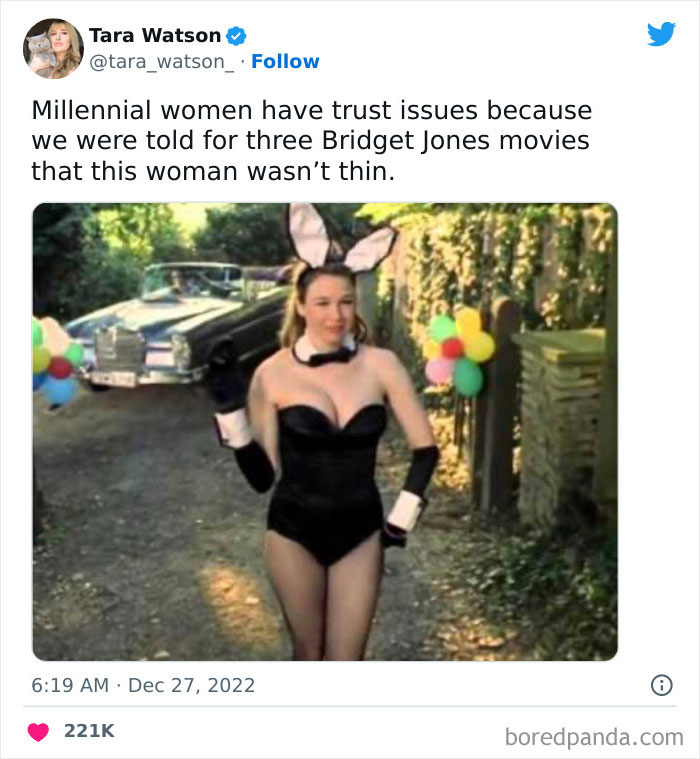
Image source: tara_watson_
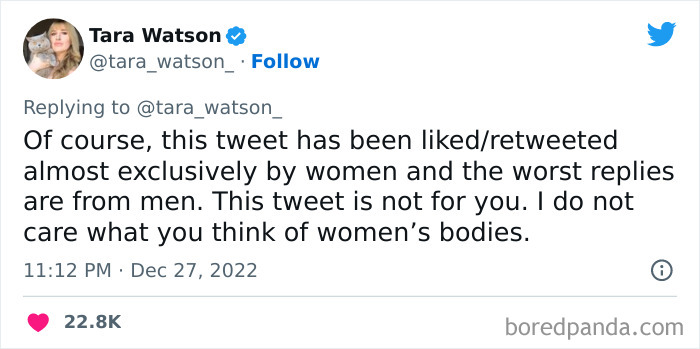
Image source: tara_watson_
This post may include affiliate links.
Let me first start by saying that I acknowledge that the media today is nowhere near perfect. Body standards are still unattainable, women are still expected to never age, and diet culture is still running rampant, especially online. But some things have improved. It takes a long time to correct systemic issues, and when sexism is ingrained into many cultures, it takes quite a bit of effort to eradicate it. But one reason why I know things have improved, at least a little, is because when I watch many of these films or shows today, I know they haven’t aged well. They leave a bad taste in my mouth, and I’m confident that these storylines would not be successful with today’s audiences.
For example, I recently watched Friends for the first time, and wow, was I appalled by the “transformation” they give Monica to play a younger version of herself. Dawning a fat suit for comedic effect would not fly today, or at least I hope it wouldn’t. The joke is a cheap trick and in horrible taste. Of course, fatphobia still exists today, but I am confident that a plotline such as that on a popular sitcom today would face a mountain of backlash.
They. Called. Lucy Lawless Fat??? Okay - so... uhm... maybe it's the dudes who have body dysmorphia when looking at women because... Ms. Lawless is a stone cold fox. I'd LOVE to have her proportions.
No, she's a healthy weight. Unlike the sickly, anorexic look that media tells us is, "normal."
Even many of the films that were extremely popular in the early 2000s would never receive the same response with a modern audience. All of the jokes about Bridget Jones’ weight, along with remarks about weight in Mean Girls, The Devil Wears Prada, The Sisterhood of the Traveling Pants, Bride Wars, and countless other films and shows would definitely be critiqued today. I’m not saying that all of those movies are awful; there are redeeming moments in some. But due to all of the discussions that have taken place in mainstream media about mental health, body positivity, eating disorder awareness and sexism over the years, I am optimistic that these storylines would not be received the same way today.
Unfortunately, that does not negate the impact that these plots had on young, impressionable viewers at the time. Countless women on Twitter shared their own struggles with disordered eating or body dysmorphia, fueled by the atrocious media at the time. And these struggles don’t vanish overnight, they can become permanent issues that take years in therapy or excruciating personal growth to overcome. Let’s look at eating disorders, for example. According to the National Association of Anorexia Nervosa and Associated Disorders, “10,200 deaths each year are the direct result of an eating disorder—that’s one death every 52 minutes.” Unfortunately, the media is very powerful when it comes to how impressionable audiences view themselves, so it’s extremely irresponsible to spread messaging that promotes disordered eating.
That is in fact what they have done to clothing sizes over the decades. I've taken my measurements from the 80's and put them in clothing size charts now and the size is waaaay off what I wore back then. Like why do they do this? I often wonder if it's to make us feel bad for how "big" we were or to make us feel as though we are "smaller" now.
The comparison at the time was with Kate Moss. Of course everyone seems fat if compared to Kate Moss.
To learn more about what inspired this conversation on Twitter in the first place, we reached out to Tara Watson, the editor of Punkee. She shared with Bored Panda that she started rewatching Bridget Jones’s Diary at Christmas time because she loved the movies growing up. “Last year, I was watching it with my mum, and we were both shocked to see how thin Renee Zellweger was in the first movie. While she is often seen wearing frumpy and oversized clothing in the movies, there's several scenes where she's not wearing much at all and there's no denying that is a thin woman!”
“Despite this, Bridget calls herself ‘fat’ throughout, and the characters around her reinforce this skewed view,” Tara pointed out. “I didn't even recognise how odd this was while growing up in the 00s, as seeing extremely thin women represented everywhere was the norm. I was left baffled that these movies had skewed my idea of women's body shapes for so long.”
We were also curious how Tara thinks this media affected her while growing up. “To see a woman who is about a size 10 represented as ‘fat’ definitely affects how young women see themselves,” she shared. “It sets unrealistic beauty standards and stigmatizes any body shapes that aren't a size 6. Women's bodies come in all shapes and sizes, and no good can come from deeming one size as superior to another.”
But Tara is optimistic that the media is moving in a healthier direction. “The body positivity movement has seen small strides made, which has translated to TV shows like ‘Shrill’, ‘Insecure', and ‘Orange is the New Black’,” she told Bored Panda. “But there's still so much more work to be done in normalizing seeing an entire spectrum of body shapes on screen -- not just thin and mostly white bodies. That being said, thankfully I can't imagine some of the dialogue in Bridget Jones would fly today.”
Finally, Tara wanted to thank all of the women who contributed to her thread. “Bridget Jones is just one example of the countless harmful depictions of women in pop culture which set unrealistic beauty standards. I had so many responses from women sharing their struggles with body confidence growing up, so thank you for sharing your stories.”
We also reached out to Mel B. and Jackie D., the hosts of the Read, Watch or DNF podcast, as they joined in on the conversation on Twitter as well. Last year, during April, they covered some of Jackie’s favorites from when she was younger to celebrate her birthday month. And one of these favorites just happened to be Bridget Jones’s Diary. “Watching Bridget Jones’s Diary 20 years later was surprising for sure,” they told Bored Panda. “Jackie says she believes as a 20-something young woman without much life experience, she found this story to be cute, funny, and relatable.”
“Now, we both agree that the level of cringe in both the book and movie are unforgivable,” the hosts shared. “Like honestly, what were we actually thinking back in 2001? The work chat exchanges between Bridget and her BOSS are so inappropriate - especially considering there was no prior relationship between these two. So she’s wearing not-so work appropriate clothing, and that’s an invitation to bring up her breasts!?”
“Looking back to 2001; we accepted that 134lbs was overweight because every magazine had features of candid celebrity photos highlighting cellulite, belly jiggles, double chins (and let’s be real, none of them actually had any of that),” Mel and Jackie shared. “So being in our teens and early 20s in the early 2000s– media made sure to remind us every day that we weren’t good enough, so when we go to see Bridget Jones’s Diary, we happily agree with all of her griping and cheer her on has she goes through fad diets, and empathize when she stress binges. Then to top it all off, we welcome the sexual harassment from the cute boss because we obviously don’t deserve the attention.”
She only gained 20 lbs for Bridget Jones. So probably only went from a size zero to a size six—-maximum.
And as far as the media today, Mel and Jackie say we still have a long way to go. “We wish we could say that [it’s gotten] better, but unfortunately we just featured an adaptation of a more recently published book, that is supposed to be an ode to female survival and empowerment, but in reality, it’s just glorified Stockholm syndrome. It parades a young neglected and traumatized girl as a survivor (which she definitely is), but we’re guided to swoon over a love interest that displays all the tendencies of a predator. But hey, he’s cute and called her sweet names. And, oh yeah, saved her…?”
Mel and Jackie then provided a few examples of media that they believe are doing things right. “Authors like Sarah J Maas write female characters who can take care of themselves, but maybe choose to take on the grumpy sexy love interest, but they don’t need them,” the hosts told Bored Panda. “Platforms such as Twitter, Twitch, and YouTube provide spaces for young women to feel comfortable expressing themselves- though not entirely flawless, but we find support and strength in numbers there.”
“We are grown women now with teenage daughters, so we hope that we are guiding them well enough where they’ll feel empowered to get out there in the world. But we’re not sure who on the outside is helping with that,” Mel and Jackie shared. “One of them really doesn’t like romance in shows and movies - which highlighted a reality that a production can’t seem to not include some sort of love/lust/sex subplot, even when it provides nothing to the story. But sex sells, right?”
If you’d like to listen to hear more from Mel and Jackie, be sure to check out their podcast Read, Watch or DNF right here!
I don't think they wanted us to think she was fat. This was to show that she gained a bit of fat and she didn't fit in the same clothes (like she gained 5-7cm on her waist). That's what was going on here. She was still slim, but not as slim as before. Who on earth would have thought she was fat in this scene???
We also reached out to blogger and content creator Magali Vaz, who contributed to Tara’s thread on Twitter as well. When it comes to how the media of the early 2000s affected her, she told Bored Panda, “I do think movies like Bridget Jones’s Diary were part of a larger culture that promoted extreme fatphobia. We were shown absolutely normal, average bodies and told that this is what an overweight person looks like, and that being fat or overweight was one of the most unattractive things, and that we should all aspire to be skinny. I think the media is one of the main reasons that most millennials have body image issues!”
Magali is also optimistic that things are improving, though. “While today's media is far from perfect, I do think it is more diverse and inclusive,” she shared. “Even tabloids don't comment about people's bodies as aggressively as they used to.”
If it's difficult for girls and women to get free of this culture, I just can imagine how it is for girls and women INSIDE this industry.
I look back at photos of me at my lowest adult weight, probably 20 years old, and I look kind of sick. I'm trying to lose COVID weight now but more trying to get healthier by eating nutritious foods and going to the gym. I'm more muscular than I ever have been, and I think that's way more attractive than looking malnourished.
We were also curious what sorts of changes Magali would like to see to prevent young girls from being fed the same toxic messages that we heard growing up. “I'd love for movies and television to feature people of different sizes, races, genders, sexual orientations, etc.,” she told Bored Panda. “More genuine diversity without it feeling like they're trying to tick a box or fill a quota. If younger folks could see more versions of themselves or people they'd like to grow into, that'd be amazing.”
If you’d like to hear more from Magali or keep up with her travels, be sure to check out her blog right here!
I’m not even a millennial, and I still remember being exposed to many of these toxic messages. We still have a long way to go in terms of eliminating misogyny from the media, but having conversations like this is one of the best way to educate the younger generations. They don’t have to stand for these outdated views, and they certainly shouldn’t support them. Keep upvoting the posts calling out messaging that you can’t believe was fed to us, and then let us know in the comments if you can recall any other toxic messages the media conveyed to you when you were younger. Then, if you’d like to read another Bored Panda article calling out blatant sexism that we still encounter today, you can find that right here!
Not that I think it's a good movie but with this logic we would never watch any movies, TV, drive anywhere or do anything or even eat because you can find connections or support tonegative things everywhere. In fact you're gross if you touch the filthy money with slave owners on it and oil is associated with oppressing women in the middle east the list of connections to atrocities is very long and touches everything.
Here's a male Gen X voice. Bridget Jones was plenty thin. I did not know they made two others. I thought the joke was that she believed she was fat, but then there's these two men attempting to pursue her because they think she's hot. I found her character annoying, but she is a beautiful woman.
The only thing I can remember from that movie is George Clooneys bat-suit having bat-nipples…I have forgotten everything else about it
All of Ally McBeal, the women in Friends, even Daphne from Frasier
I'll tell you why. Look at their neck and chest areas. The "skinny" chick has bones sticking out and the "fat" one doesn't. That about sums this all up perfectly. Seems you need to look literally like a skeleton to be consider normal and healthy, which makes NO sense at all, kids!
You'd have thought, since it's Meryl Streep, they'd have made the clothes fit HER, not the other way around... Although, of course, this goes great with the movies story line...
Reminds me when I had to find a tank top ... and the woman at the store looked at me (with barely hidden disdain) "Well, you're at least a L or XL..." and I was like... say what now. Same here... was a solid medium *everywhere else*.
Are things that much better now? Instead of tabloids commenting on women's shape and holding up skinny people as an example, celebrities post pictures of themselves which have been edited to the point of completely unreal, and are called brave if once in a while they post an unfiltered picture of what they actually look like.
Exactly. Now we get EXTREME round hip shapes, microscopic waists and huge huge booties, and people clap for it and say “wow look how diverse and inclusive we are being, this is how women actually look!” Meanwhile 90% of the ads / models like that are photoshopped or have BBLs. At least you can lose weight to be thin. There’s nothing short of surgery you can do to achieve todays standard. Just look at the Fashion Nova ads on Instagram and tell me I’m wrong.
Load More Replies...Bridget Jones' Diary (the novel) was meant to be satire, in a similar vein to Adrian Mole - someone writing from such a narrow personal perspective they miss the really obvious things happening in front of their face. Or they interpret events one way, when reality shows another. It was satirising the culture at the time which all these lovely tweets are repeating - Bridget had been brainwashed by the media that a UK size 10 was fat. That was the point. And the filmmakers missed it by several miles, giving us a mere romcom with a "clever" casting gag (Colin Firth was literally who Helen Fielding was imagining when she wrote Mr Darcy), instead of taking a look in the mirror themselves.
Loved the book, hated the movie for these very reasons.
Load More Replies...Yeah, we all remember when having a ‘heroin chic’ body was considered ideal and not dangerous. [Edit: it is 100% dangerous].
And that began in the 1990s for extreme thinness (Kate Moss et al.)....
Load More Replies...Are things that much better now? Instead of tabloids commenting on women's shape and holding up skinny people as an example, celebrities post pictures of themselves which have been edited to the point of completely unreal, and are called brave if once in a while they post an unfiltered picture of what they actually look like.
Exactly. Now we get EXTREME round hip shapes, microscopic waists and huge huge booties, and people clap for it and say “wow look how diverse and inclusive we are being, this is how women actually look!” Meanwhile 90% of the ads / models like that are photoshopped or have BBLs. At least you can lose weight to be thin. There’s nothing short of surgery you can do to achieve todays standard. Just look at the Fashion Nova ads on Instagram and tell me I’m wrong.
Load More Replies...Bridget Jones' Diary (the novel) was meant to be satire, in a similar vein to Adrian Mole - someone writing from such a narrow personal perspective they miss the really obvious things happening in front of their face. Or they interpret events one way, when reality shows another. It was satirising the culture at the time which all these lovely tweets are repeating - Bridget had been brainwashed by the media that a UK size 10 was fat. That was the point. And the filmmakers missed it by several miles, giving us a mere romcom with a "clever" casting gag (Colin Firth was literally who Helen Fielding was imagining when she wrote Mr Darcy), instead of taking a look in the mirror themselves.
Loved the book, hated the movie for these very reasons.
Load More Replies...Yeah, we all remember when having a ‘heroin chic’ body was considered ideal and not dangerous. [Edit: it is 100% dangerous].
And that began in the 1990s for extreme thinness (Kate Moss et al.)....
Load More Replies...
 Dark Mode
Dark Mode 

 No fees, cancel anytime
No fees, cancel anytime 











